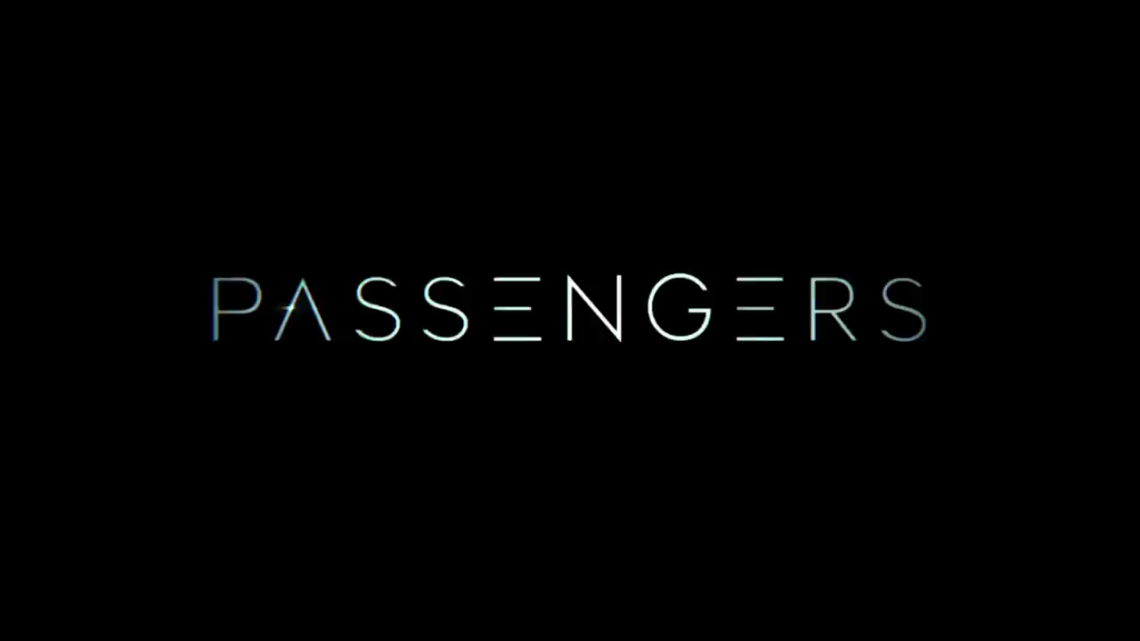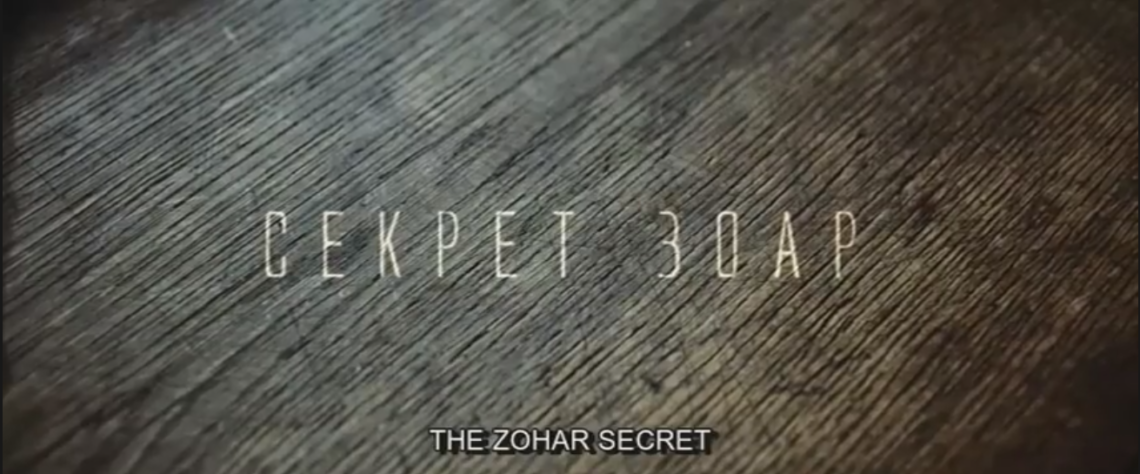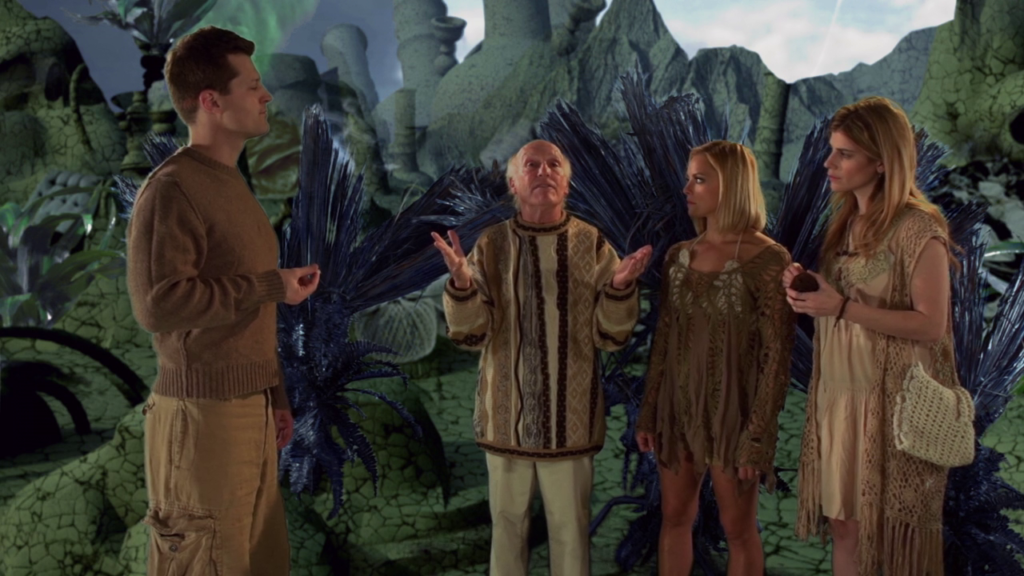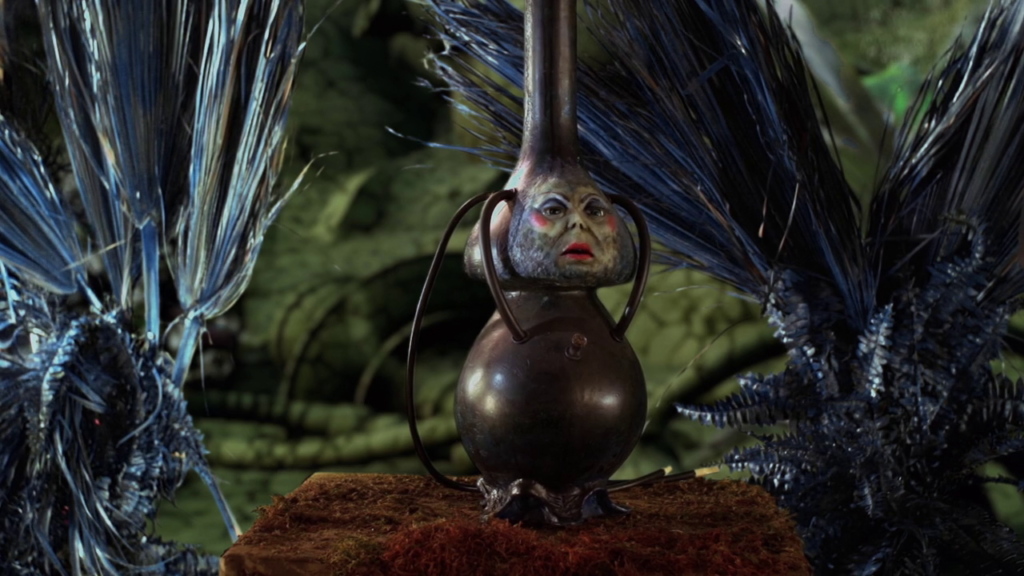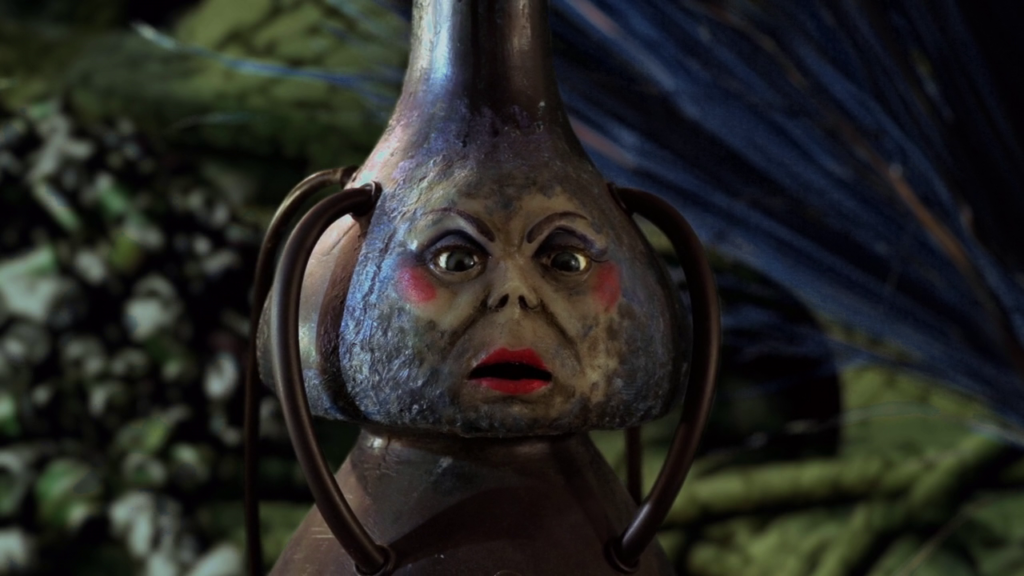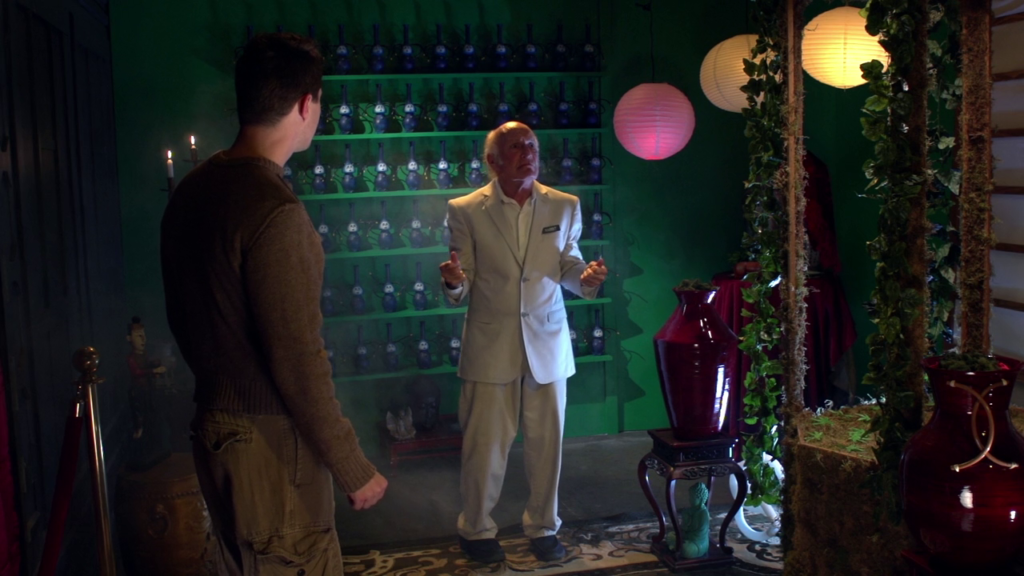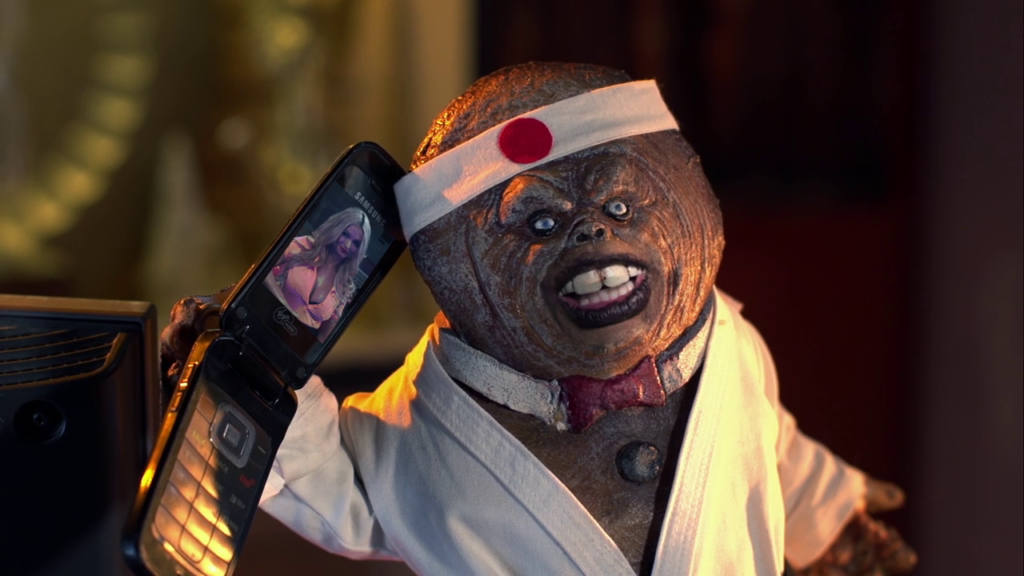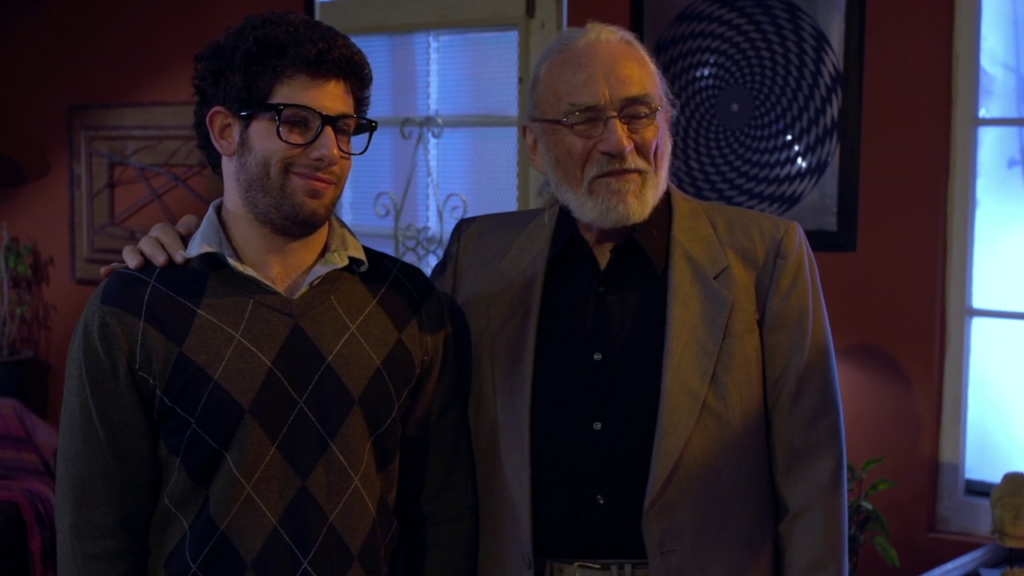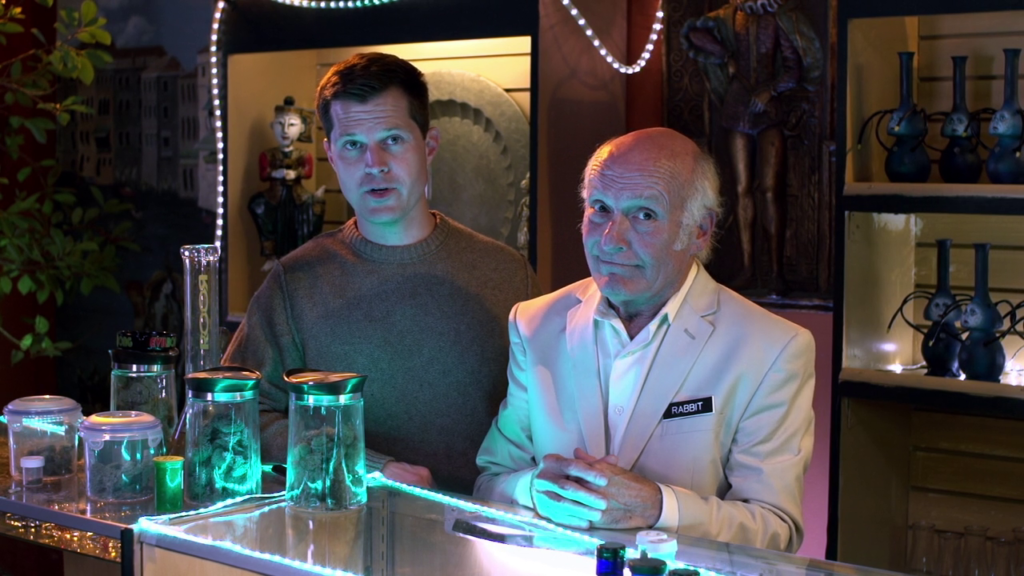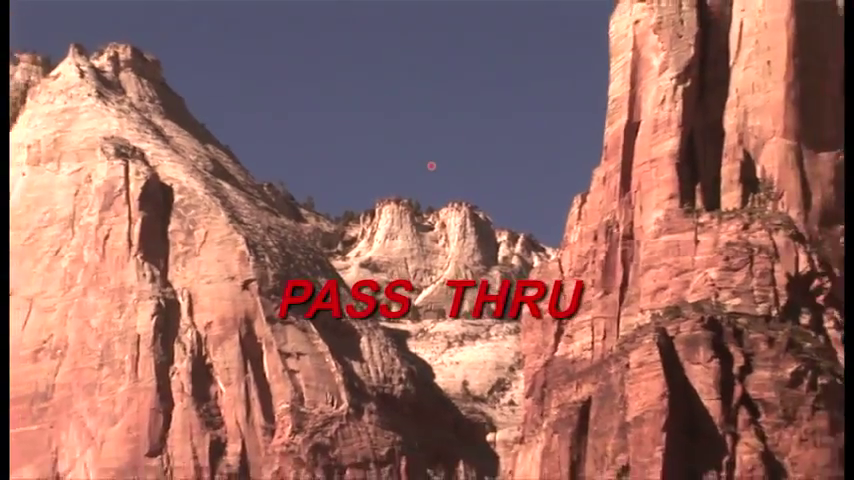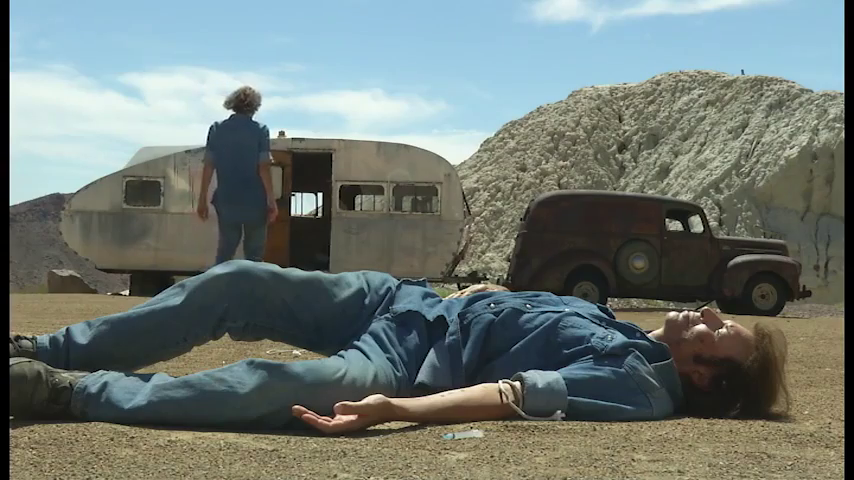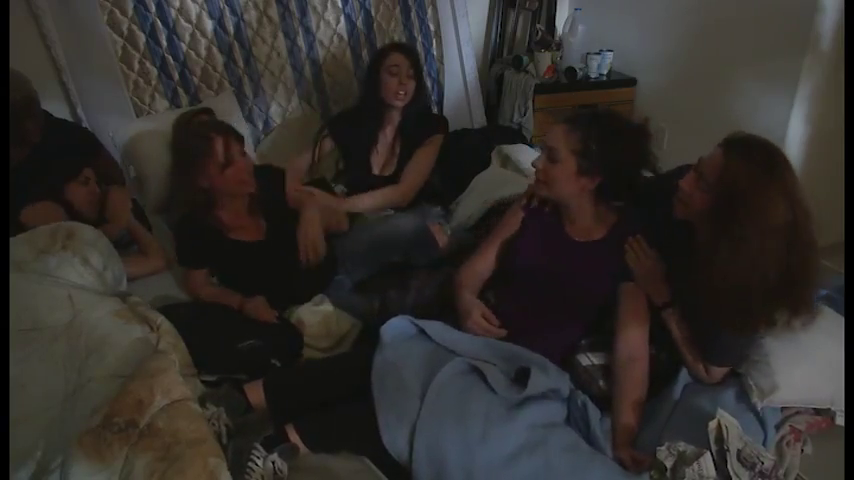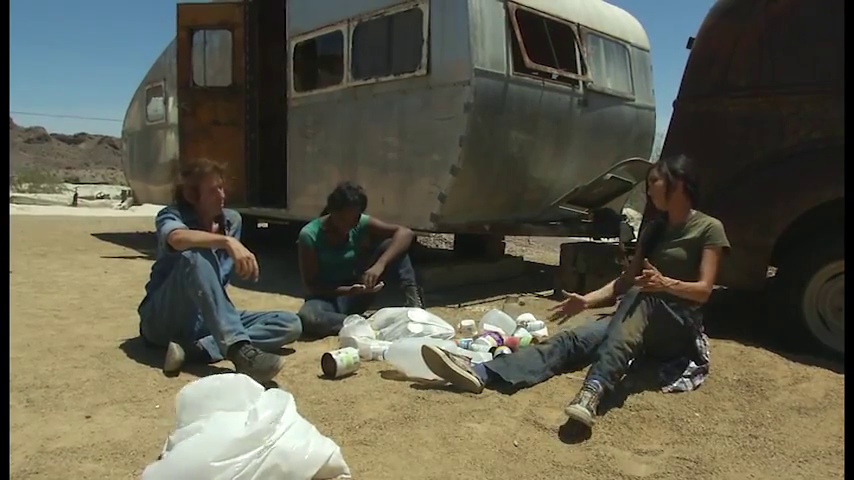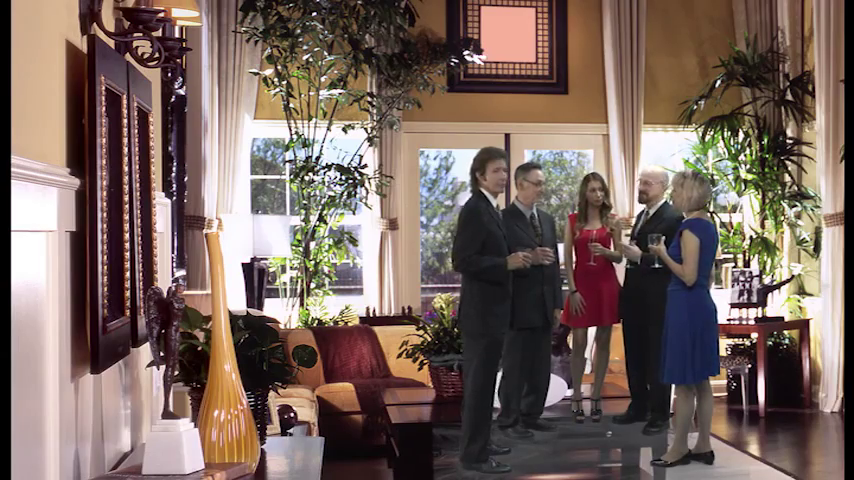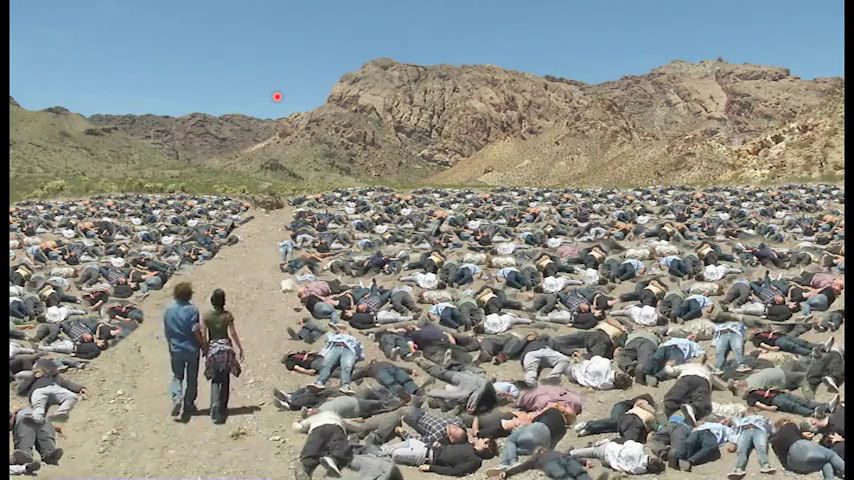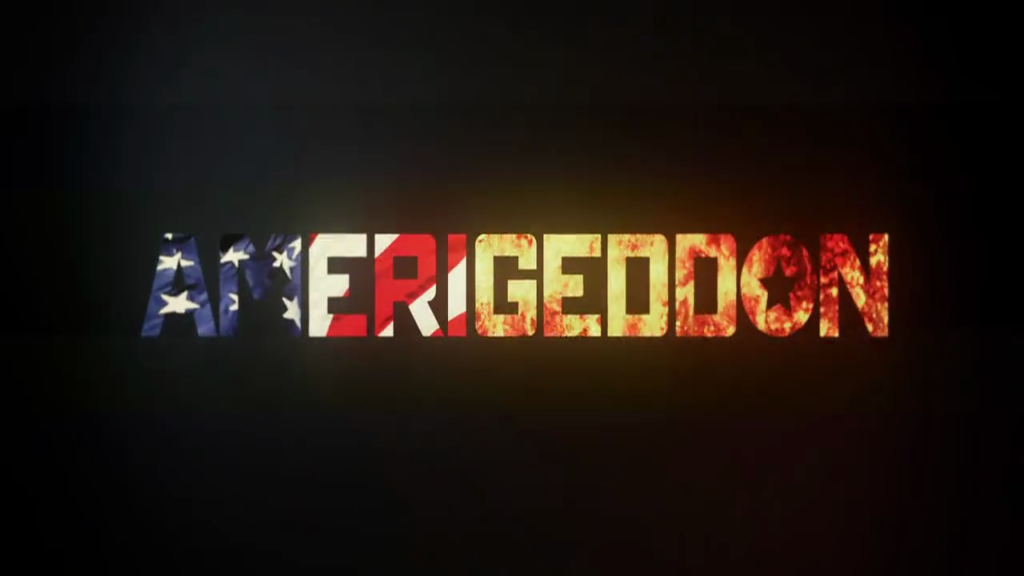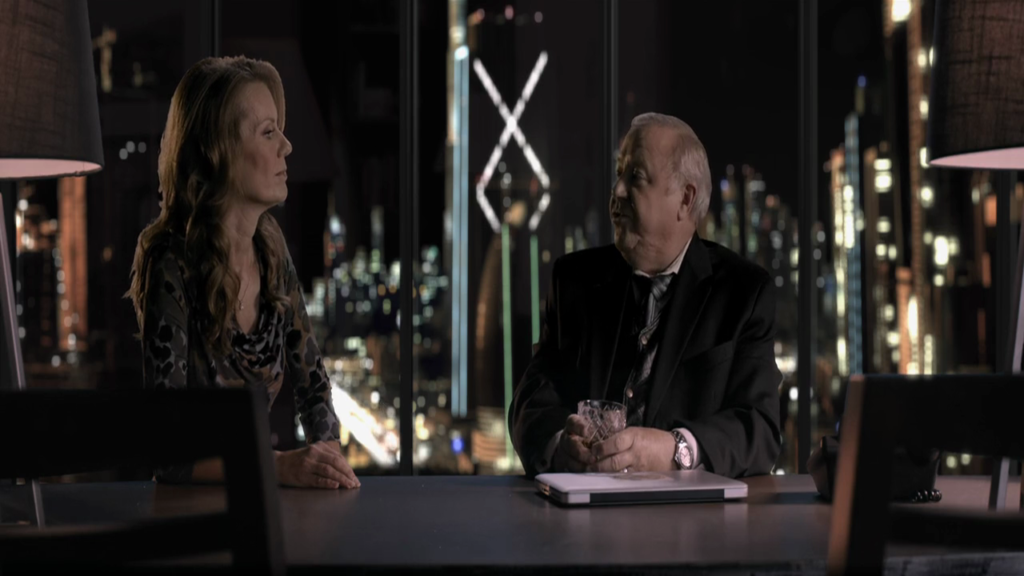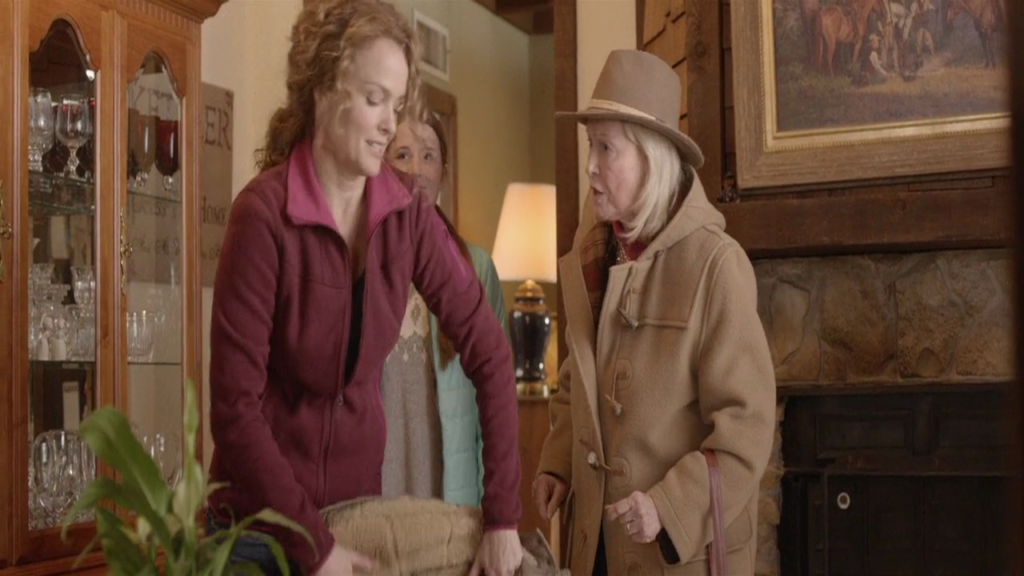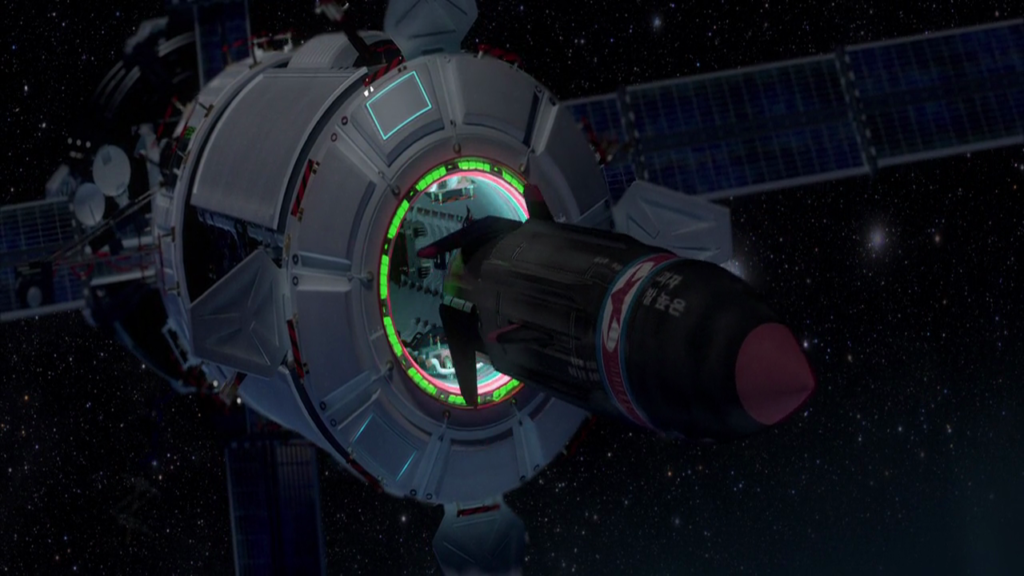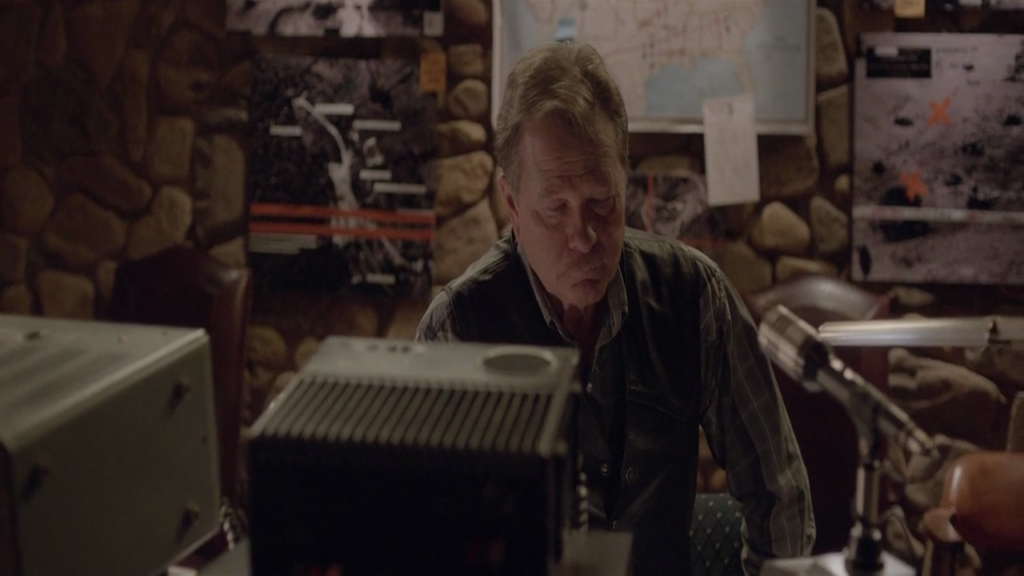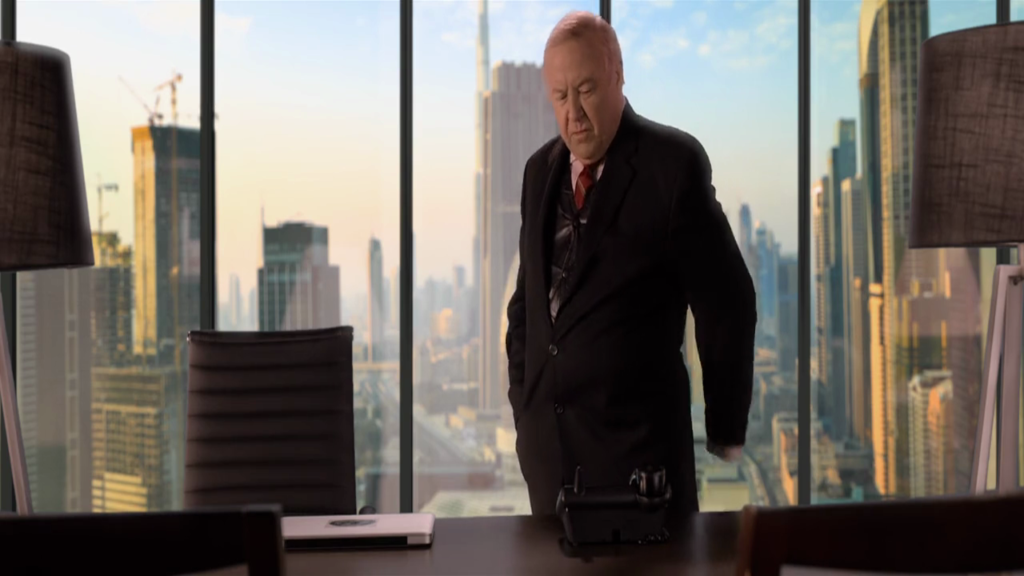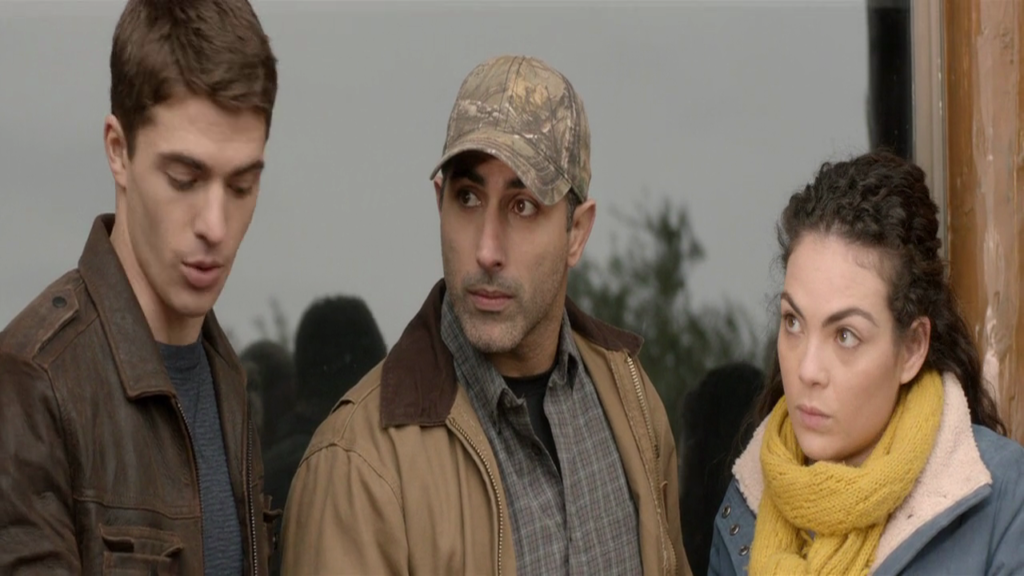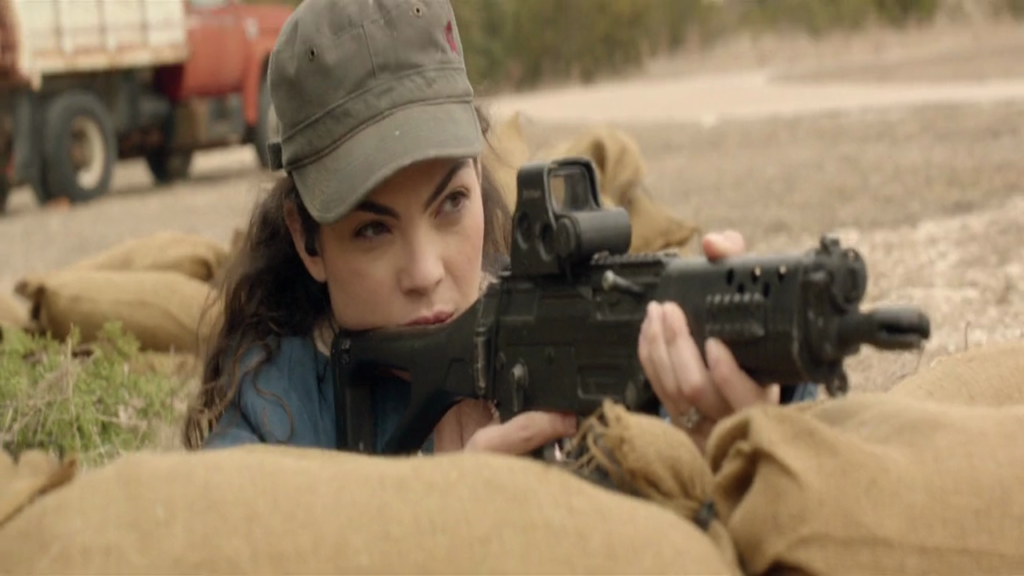-
#662 – Viral (2016)
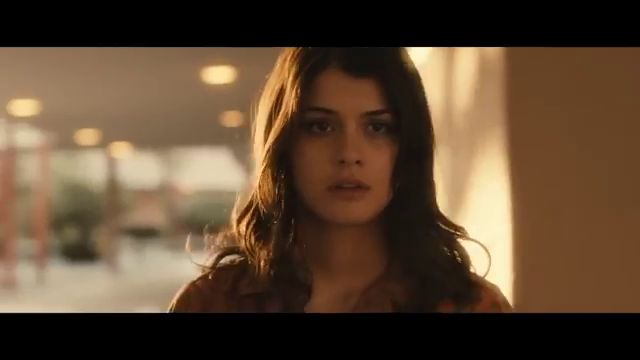






Viral (2016)
Film review #662
Director: Ariel Schulman; Henry Joost
SYNOPSIS: When a parasitic infection starts to spread in a suburb, the entire town is quarantined, and Stacey and Emma, two sisters, are caught within while their parents are out of town. As people they know are taken over by the parasite, which turns them into aggressive , ravenous monsters, the survivors must find a way to survive…
THOUGHTS/ANALYSIS: Viral is a 2016 sci-fi horror film. Stacey and Emma are Sisters that move to a Californian suburb with their parents. When an outbreak of ‘worm flu’ hits the area, the Sisters are trapped in the quarantine zone, while their parents are away, and must find a way to survive as their neighbours are infected and turn into ravenous, aggressive monsters. Following the typical script of a viral/infected outbreak, the two Sisters must try and survive amidst a host of typical teenage problems. While a low-budget film with not much in the way of flashy setups or large-scale events, the film at least has a coherent narrative focusing on the two sisters, and hinging everything around that. The rest of the teen drama stuff rarely hits home, and lacks a similar investment.
The premise of the film is revealed quite clearly, although perhaps a bit on the nose that Emma and Stacey’s Father is a biology teacher who just so happens to be an expert in parasitic infections. While the effects are mostly low key, I found the gore and bodily infections very visceral and disturbing; which is undoubtedly what is intended. While the dynamic between the two sisters drives the story along, other plot elements lag behind, and other characters seem to hang about doing very typical things that don’t distinguish them. The film loses its way towards the ending, and I don’t think had any real idea what to do to conclude it, so it just…doesn’t.
While Viral is for the most part a very typical outbreak horror film, it does provide some entertainment at its core, and some nasty effects to make its atmosphere stick. Outside of that though, there’s not much that is memorable or interesting amidst the many other films like it.
-
#655 – High-Rise (2016)
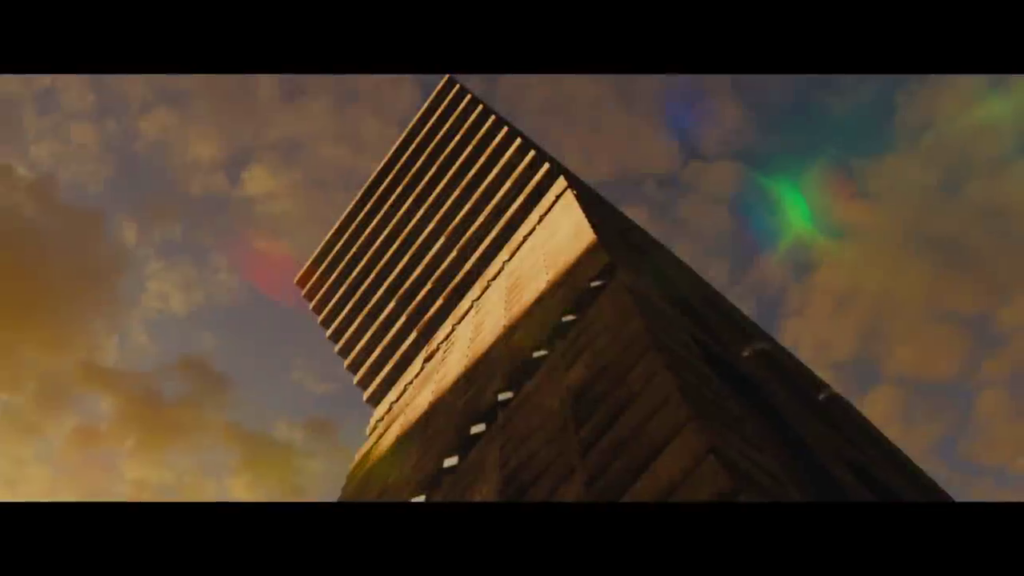
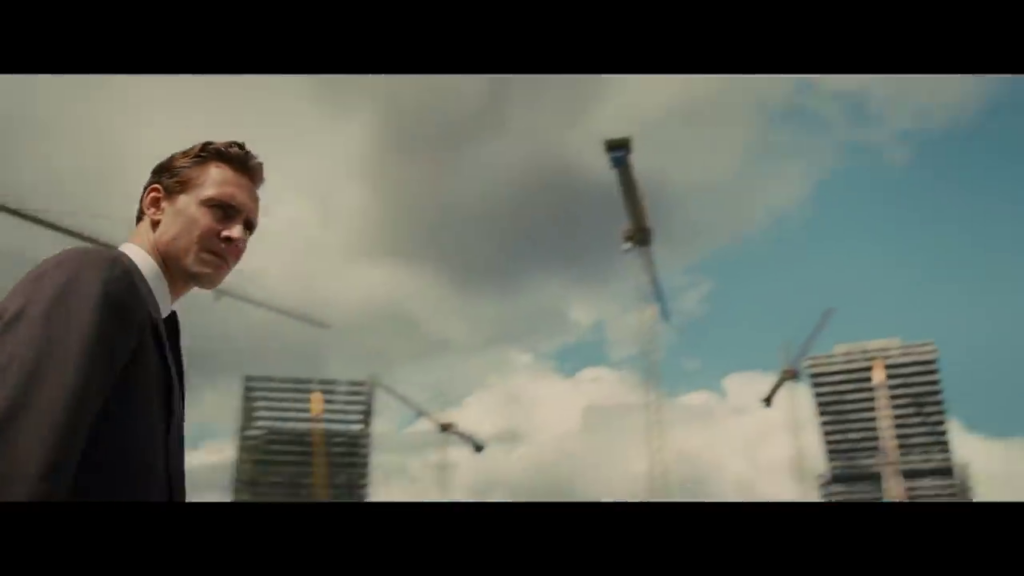
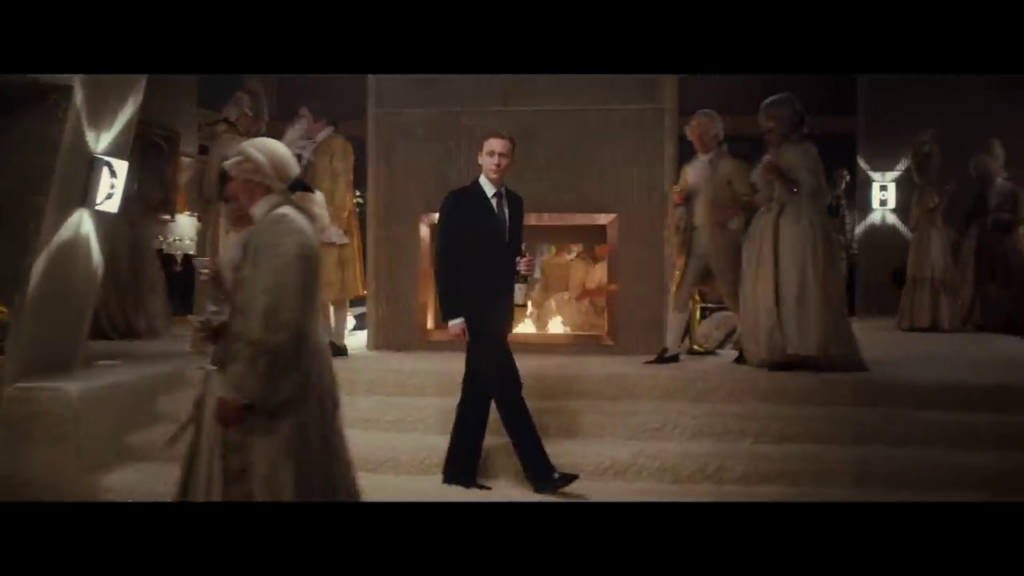
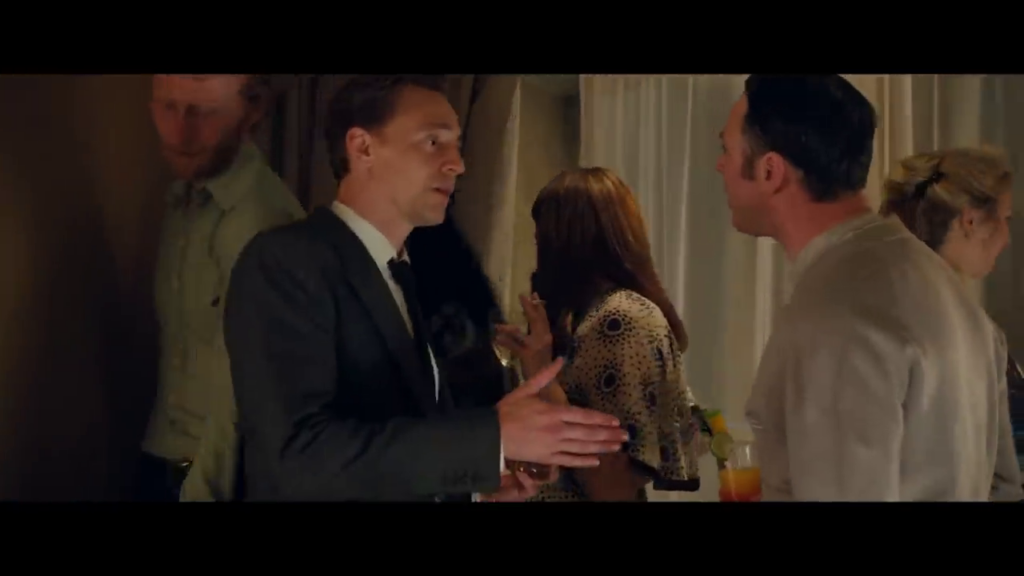
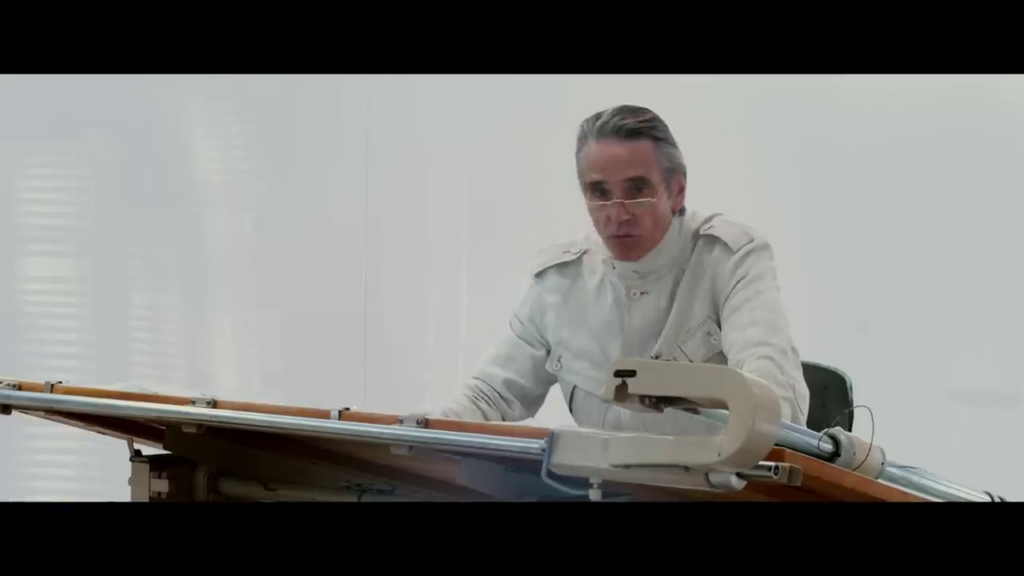
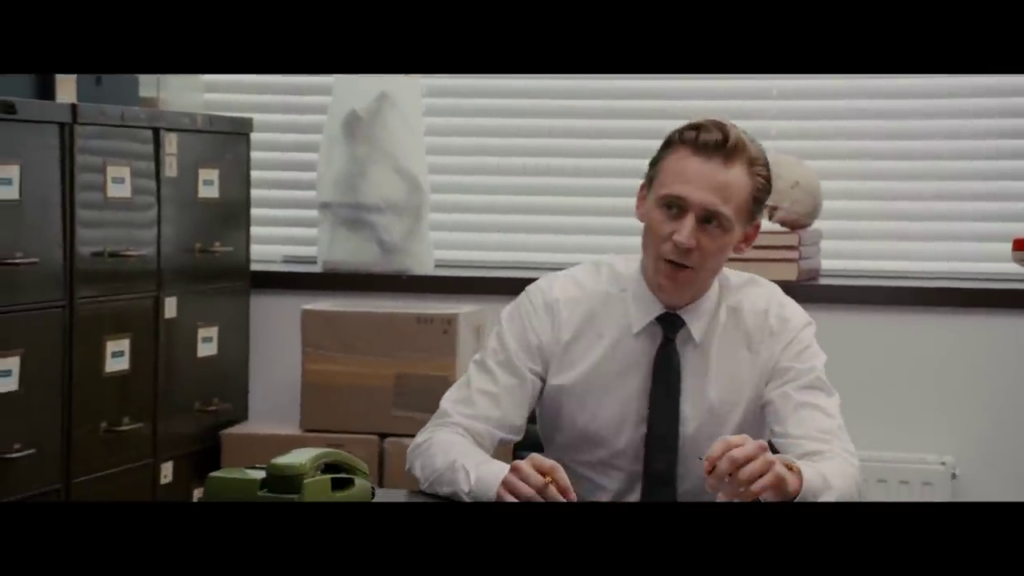
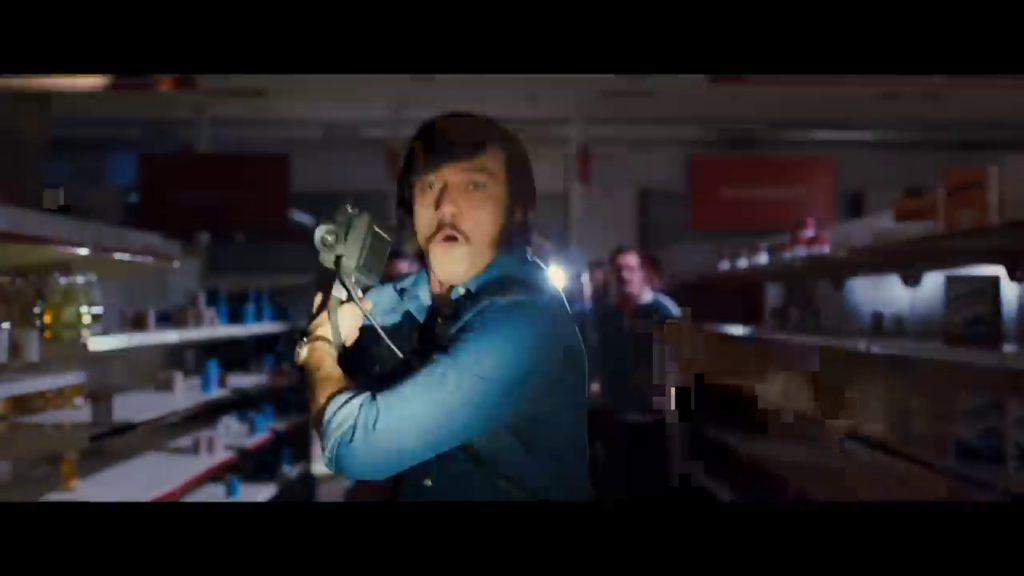

High-Rise (2016)
Film review #655
Director: Ben Wheatley
SYNOPSIS: Dr. Robert Laing moves into a brand new tower block, where the richest residents live at the top, and the poorest below. Seeing a world of decadence and excess, he eventually joins in on the social structure created by the building, but the social hierarchy is threatened as order breaks down…
THOUGHTS/ANALYSIS: High-Rise is a 2016 dystopian film based on the 1975 novel of the same name by J.G. Ballard. Set at the time of the original novel, the film focuses on neurologist Dr. Robert Laing as he moves into a state-of-the-art tower block on the outskirts of London, where the upper class residents live on the higher floors, while the poorer residents live below, with all amenities and services provided inside, so that leaving the block is hardly necessary. Wanting to live a quiet life, Robert tries to keep to himself, but eventually finds himself embroiled in the tower’s lavish lifestyle, and when the hierarchical order starts to break down, he must find a way to survive. A lot of this film focuses on style: it goes to great lengths to highlight the decadent lifestyle of the rich that goes on, to the detriment of those living below. There’s barely ten minutes that go by in this film without a new party scene kicking off. The setting is illustrated fairly well, and you get a good sense of the differences between the floors, and the points of contest that everyone has, reflecting society as a whole condensed into this single tower block, which echoes the intent of Ballard’s dystopian novel. While the film certainly captures the feeling of the 1970s of which it is set, with the ubiquitous tower blocks of the time providing the basis of its dystopian critique, it does perhaps lack the bite that Ballard’s original story did of the time with the contemporary setting. However, its contrast between social classes is still sharp enough.
The biggest problem with this film is the plot: while there undoubtedly is one, it is often obscured or unintelligible behind the overwhelming decadence and stimulation on screen, with all the shouting and partying, it’s difficult to get into the nuances concerning the different characters and their relations. The main beats of the lower class rebelling against the upper is fairly evident, but anything beyond that fails to establish itself. It may be argued that part of this is that the breakdown of society, along with the breakdown of the main characters mental state, are illustrated by this incoherence, but you can certainly show that while still making a story that’s simple to follow. As such, it never really grips you at any point, and there’s nothing really at stake for any of the characters, as this revolution never really seems out of necessity; it’s not like these people are trapped in the tower block, they could have left at any time. While the film focuses on its style and aesthetics, it somehow fails to showcase any human response or emotions in any of the characters. Again, you could argue that the absence of humanity in the conditions of the tower is part of the plot, but it fails to offer anything in place of that.
Overall, High-Rise revels in style and decadence to establish an environment in which humanity is lost amidst an all too familiar class struggle. Any sense of narrative or characters is lost amidst the constant party scenes and anarchy, meaning there is very little narrative to progress, and the mish-mash of sex and violence never coheres into anything graspable or meaningful. A mess, but a mess with a bit of flair.
-
#650 – Cyborg X (2016)
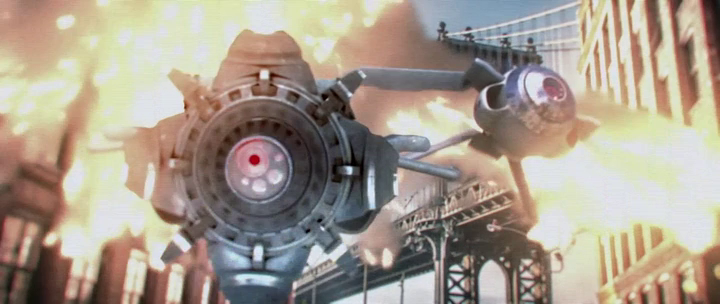
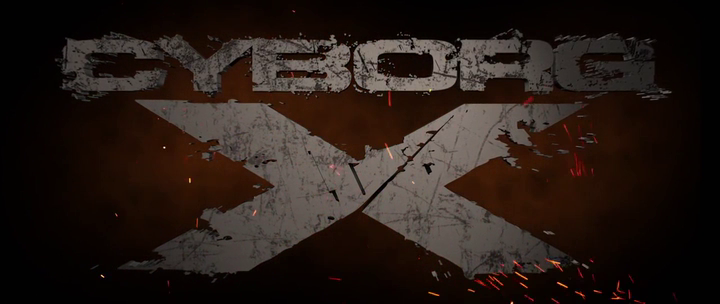
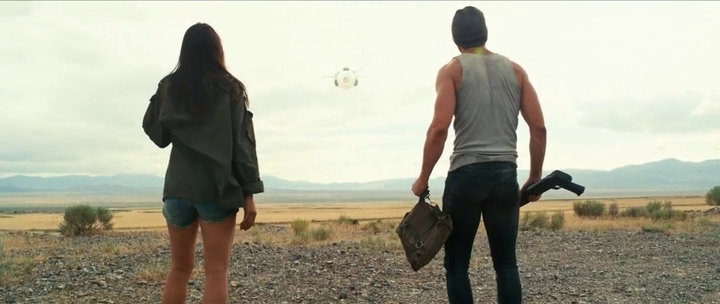

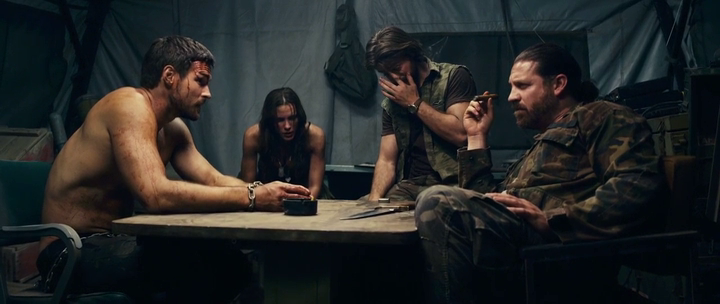

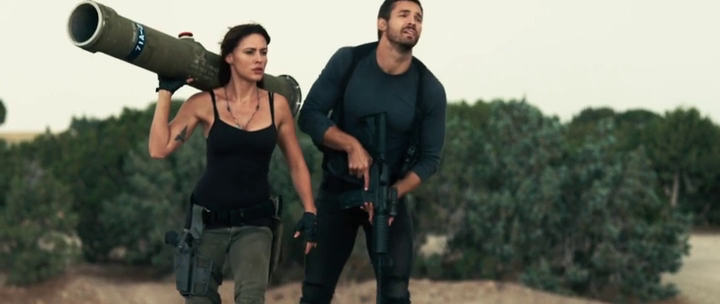
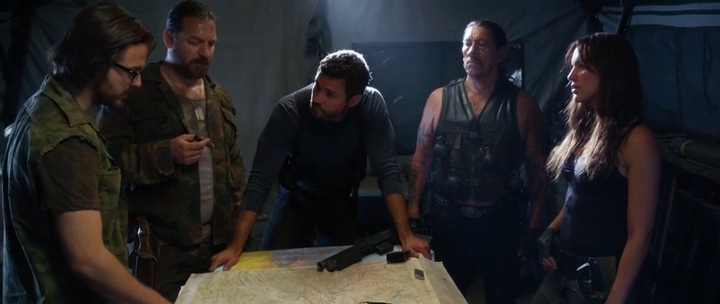
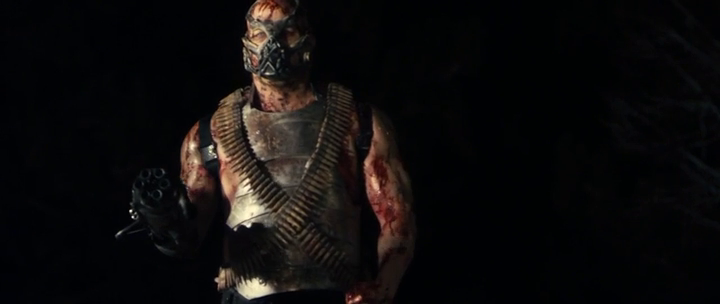
Cyborg X (2016)
Film review #650
Director: Kevin King
SYNOPSIS: When a computer virus infects the weapons manufacturer X-Corp, it’s drone weapons hunt down humans and reduce the world to ruin. Hiding out in the desert, a group of survivors happen to learn that X-Corp CEO Jack Kilmore has been kidnapped by the cyborgs that now roam the planet nearby. They plan a rescue mission to retrieve him and use the knowledge he undoubtedly has to turn the tide of the war against the cyborgs…
THOUGHTS/ANALYSIS: Cyborg X is a 2016 film and the fourth film in the Cyborg series of films. That said, the film has no ties with any of the previous films other than the name, and the year it is set would, in theory, make it a prequel. However, nothing in the film itself shows up in the others. The weapons manufacturer X-Corp has developed a new form of warfare in the form of cyborg drones that can implant and control humans, but when a computer virus infects the system, the weapons attack humans indiscriminately, reducing the world to a very familiar post-apocalyptic wasteland. In the aftermath, we find ourselves in a desert in the middle of nowhere: the favourite setting of post-apocalyptic films that have no budget to build sets. A group of survivors are banded together here and discover that the X-Corp CEO Jack Kilmore has been kidnapped by cyborgs nearby and mount a mission to rescue him, figuring he has knowledge that can be used to win the war. A very typical story (a bit too “inpspired” by Terminator at some points) accompanied by a typical cast of mediocre characters leave this film dull and predictable, although you shouldn’t be expecting much considering the obvious lack of budget and wooden acting.
The film has a fair amount of violence and gore, but the effects aren’t particularly great. There’s one scene where a guy wakes up to find the entire lower body is missing, and he just starts crawling with his insides hanging out and shooting cyborgs without any regard for logic and the fact he should be long dead. The CG effects are even worse, and aren’t going to convince anyone. All of the cyborgs have the same look to them as well, which is strikingly similar to Bane in The Dark Knight Rises. It’s a bit odd how the cyborgs are supposed to be humans who have had this drone thing attached to their face and transformed, but they all manage to look exactly the same for some reason, probably just because they could only afford to outfit one guy with the gear. Nothing in this film feels authentic, entertaining or exciting, it’s just another low budget post-apocalypse mess that fails to do anything noteworthy.
-
#597 – Passengers (2016)
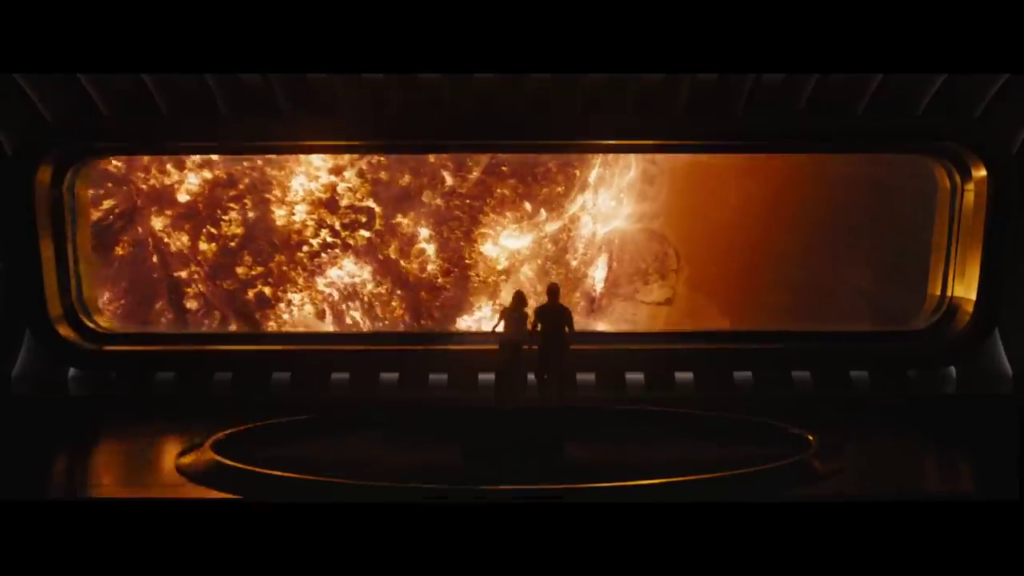
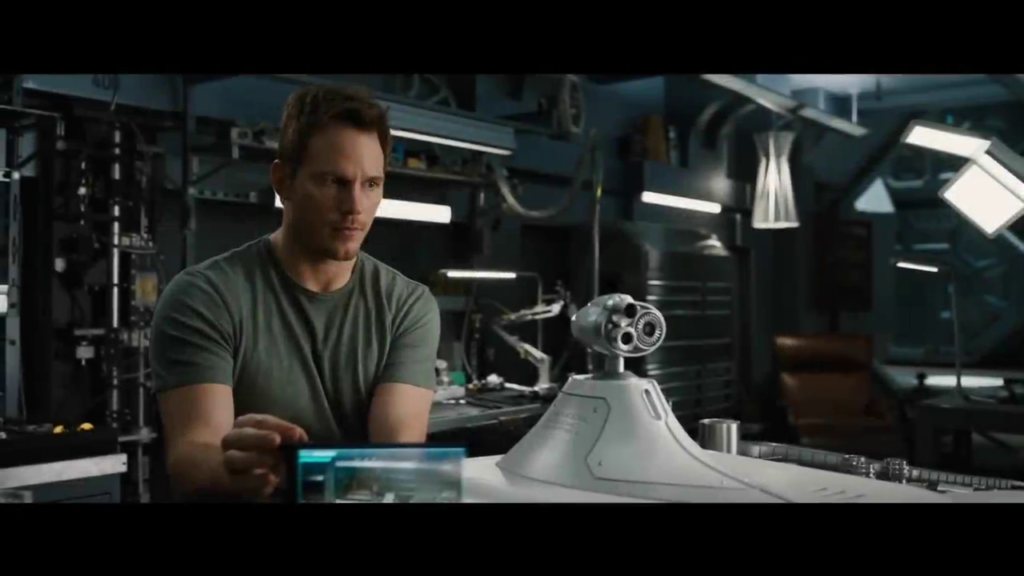
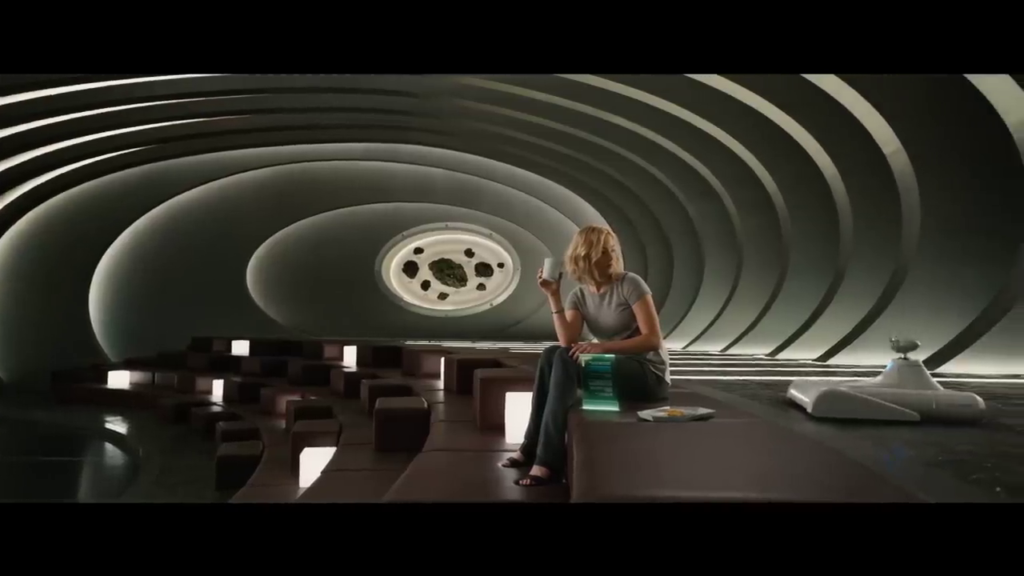
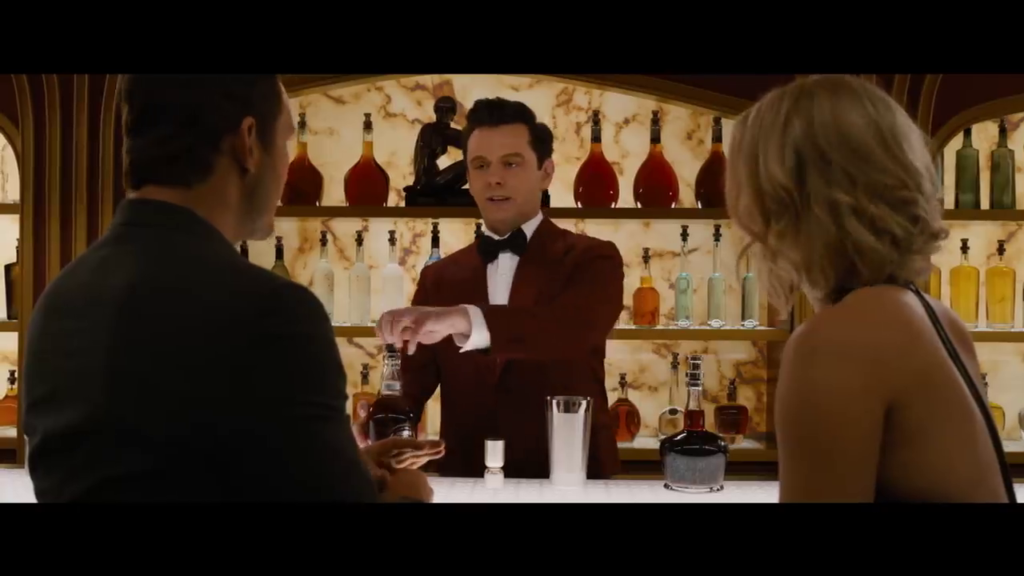
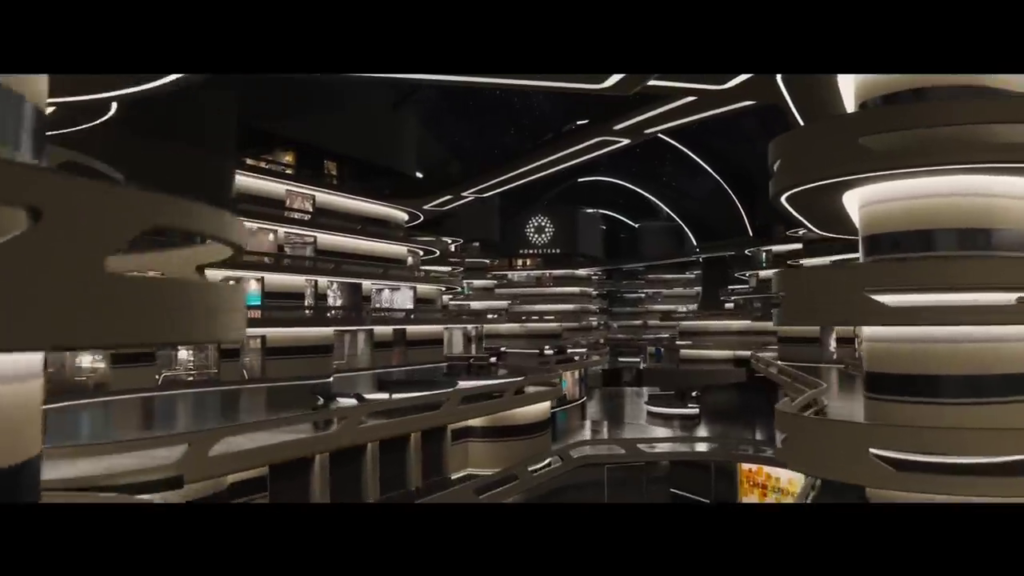
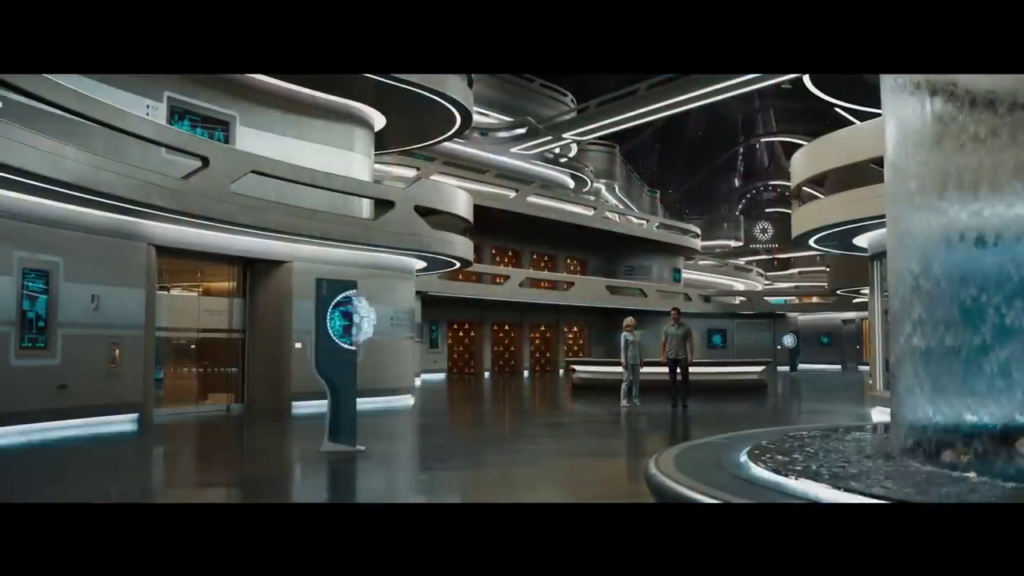
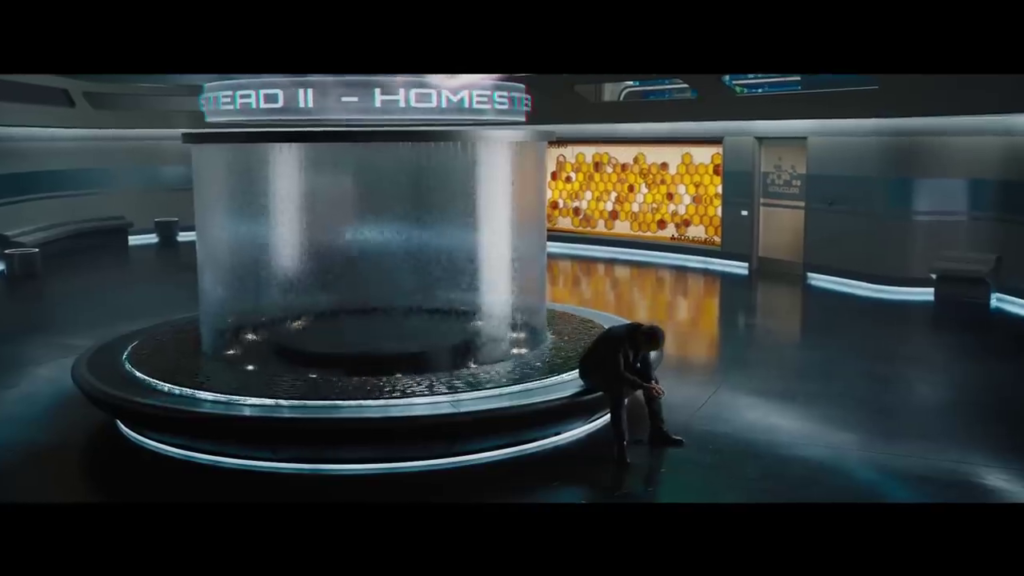
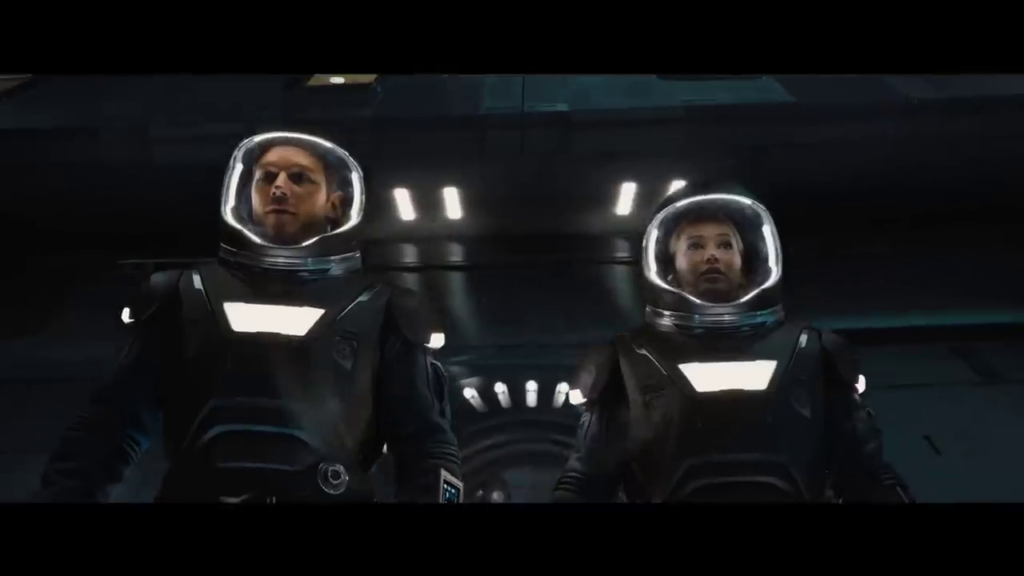
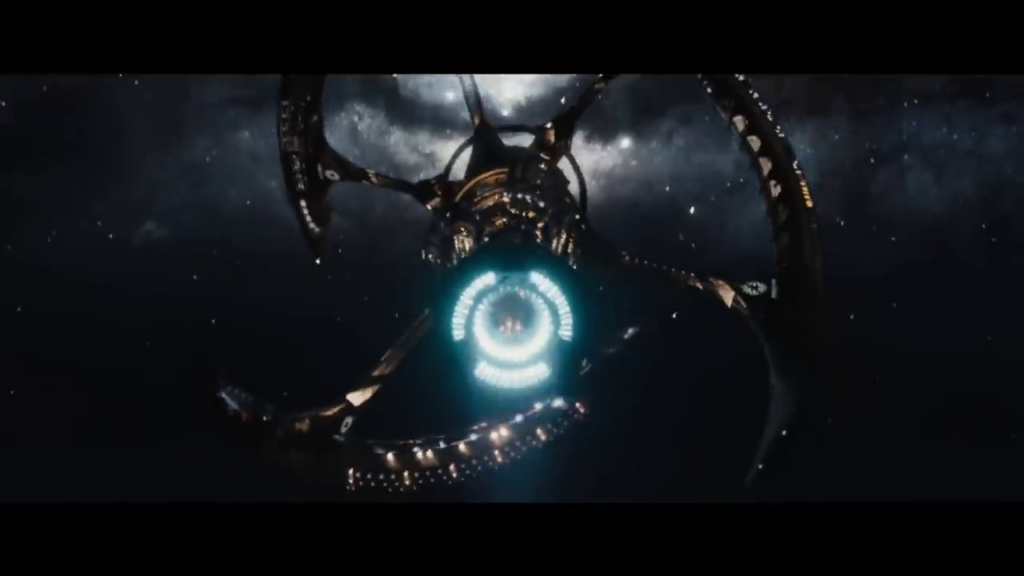
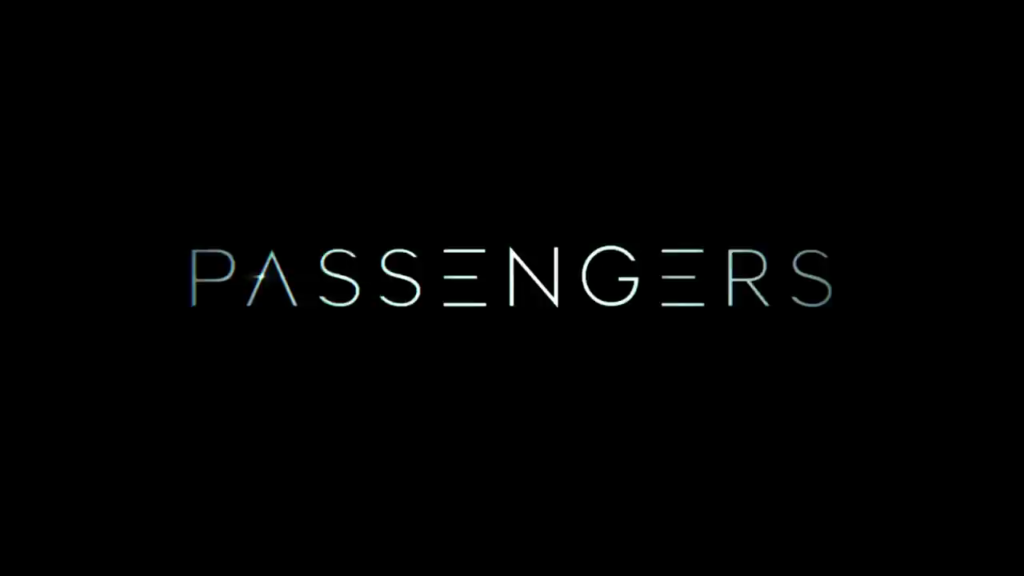
Passengers (2016)
Film review #597
Director: Morten Tyldum
SYNOPSIS: A Spaceship transporting colonists to a new planet is thirty years into it’s journey when Jim Preston is suddenly awakened from cryo sleep unexpectedly. being the only person woken up, and with ninety years to go until the voyage is complete, Jim spends a year alone, unable to return to sleep, until he, in desperation, releases another person, Aurora Lane, for companionship. However, the malfunction that woke Jim up threatens to extend to the entire ship, and the pair must work out what the problem is in order to save the lives of everyone aboard still in stasis…
THOUGHTS/ANALYSIS: Passengers is a 2016 sci-fi romance film. Set onboard a spaceship that is carrying its passengers and crew in cryogenic sleep on a one hundred and twenty year journey to a new planet. Thirty years into the journey, Jim Preston, a passenger, is suddenly awakened from sleep unexpectedly due to a malfunction. Unable to return to sleep or to wake anyone else up, he spends over a year by himself (apart from a robotic bartender for company), eventually becoming more and more depressed and desperate from company. In desperation, he wakes up another passenger, Aurora Lane, a writer who he has been learning about, lying about the fact that he woke her up and blaming on a malfunction instead. The story is focused on a romance story rather than anything else, offering very little novelty with the science-fiction element. The stand-out dilemma in this is clearly that Jim’s decision to wake up Aurora essentially condemns her to spend her life alone with him, without her consent. The film takes great steps to try and show both the desperation that Jim has for company, and the acknowledgement that what he is doing is wrong, but you can never shake the feeling that what Jim did was ultimately wrong. When the film tries to tie things up neatly with regards to the romance or just overlook that dilemma, it certainly lingers in your mind as a viewer when the film tries to move on.
Chris Pratt and Jennifer Lawrence turn in good performances in the lead roles, and the supporting roles of Martin Sheen and Laurence Fishburne also play their parts well. This is almost certainly one of those films that avoids going too hard on the science-fiction element, in fear of alienating the romance audience. Passengers really seems averse to explaining anything: the fact that the malfunction just so happens to wake up one ordinary person, then later wakes up a senior officer is all very convenient, and we don’t really get a sense of what is going on other than “things are broke, we need to fix them.” Critic’s response to the film blasted it for this lack of depth, but audience reception seems to be more favourable, as they were quite content with the simple story. I think that sums up the film fairly well: lacking in depth and nothing overly special, but easy to watch and mildly entertaining, even if predictable.
-
#498 – The Zohar Secret (2016)
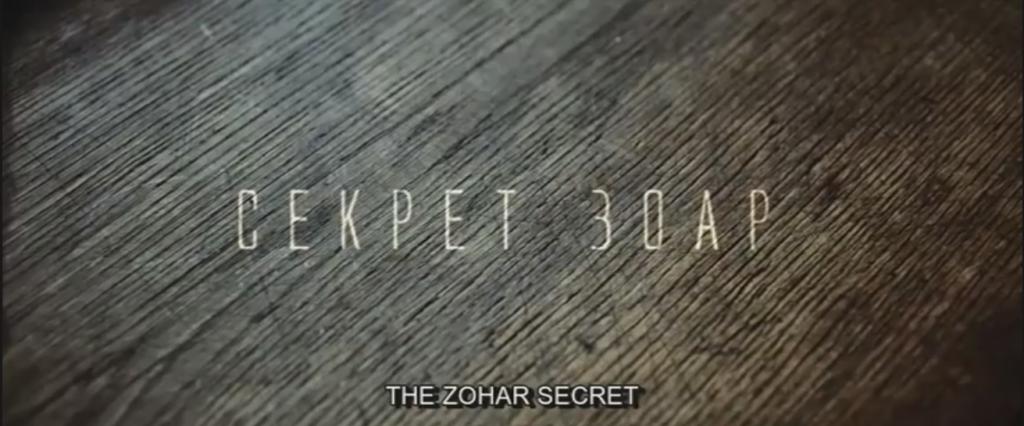
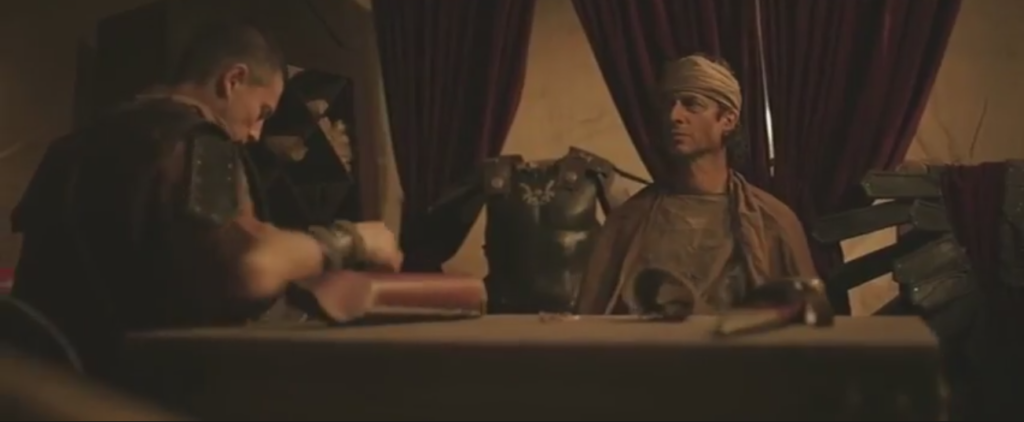
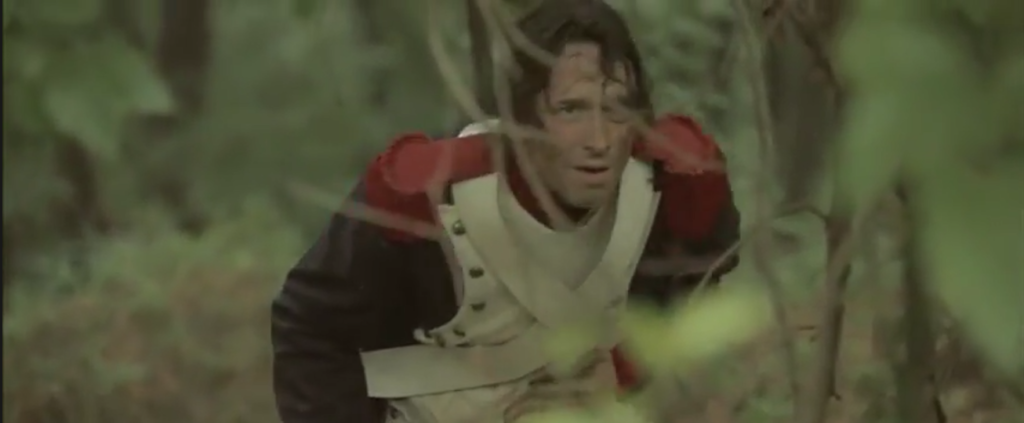
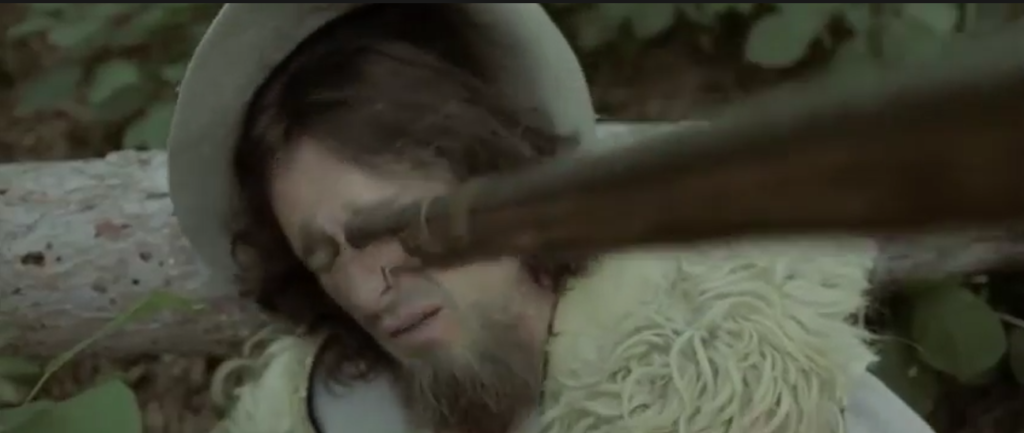
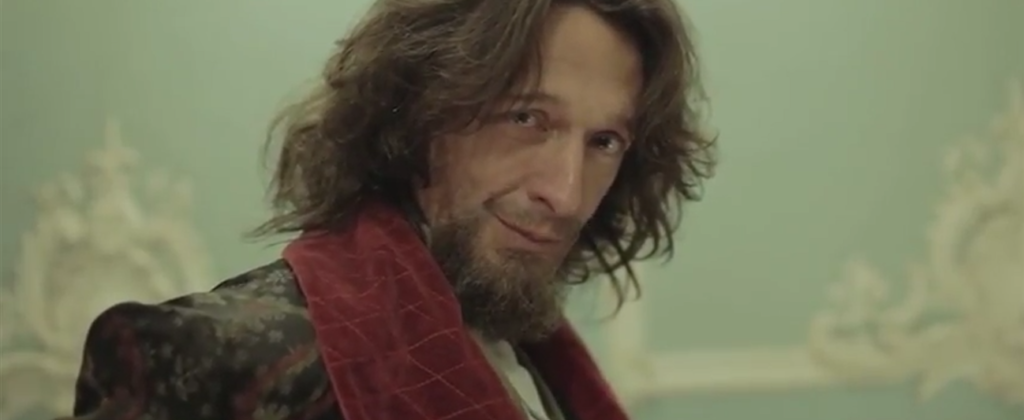
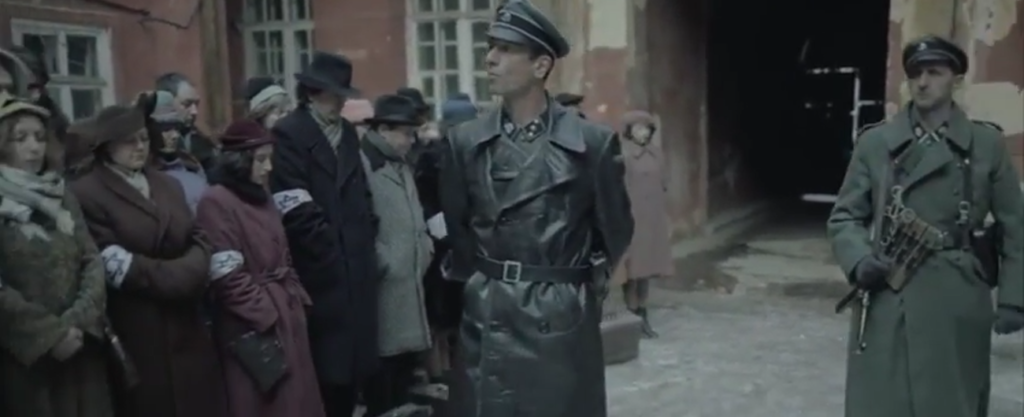
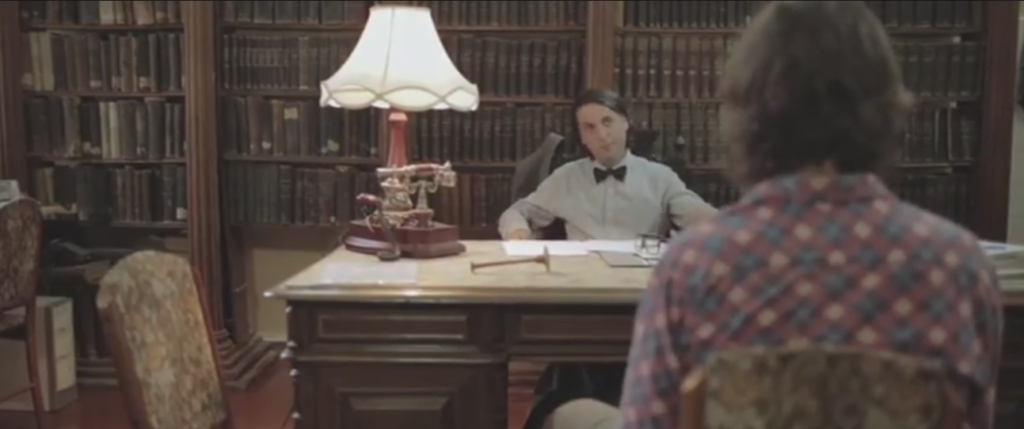
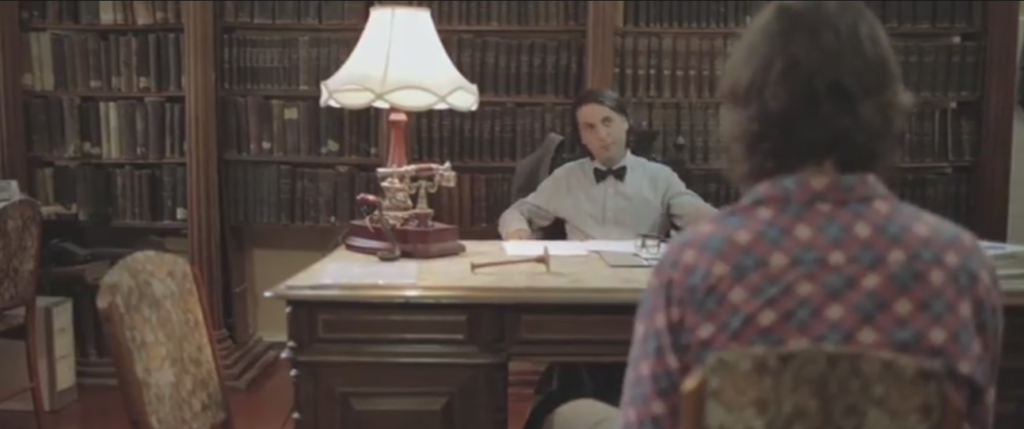
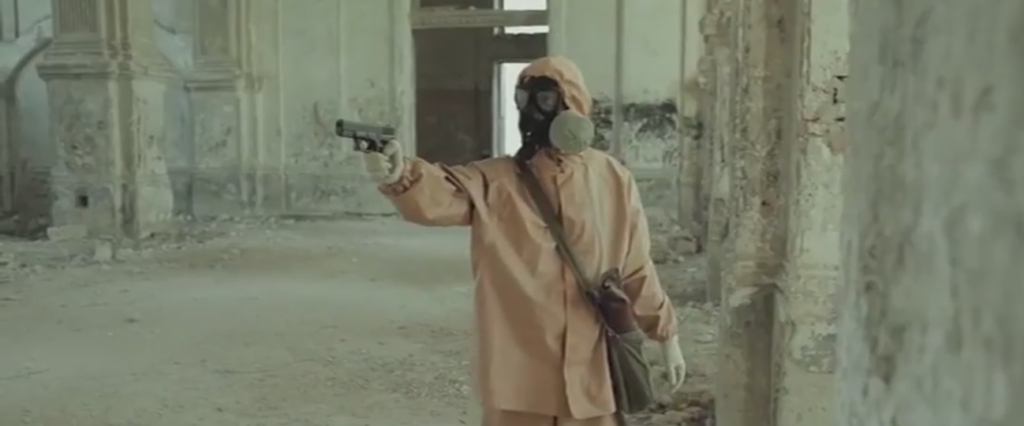

The Zohar Secret (2016)
Film review #498
Director: Vladek Zankovsky
SYNOPSIS: Max finds himself in possession of a scroll that contains the secret to transcend earthly existence and enter the next dimension of being. He is constantly being reborn in different eras of history, but always with the same task: to return the scroll to Jerusalem, where the rest of the scrolls in the collection have been buried.
THOUGHTS/ANALYSIS: The Zohar Secret is a 2016 Ukrainian film. The film centres around Max, who is constantly reborn across history with the constant mission to return a scroll to Jerusalem that supposedly contains the instructions to enter the next dimension of being. The backstory concerns how the scrolls were created by those opposed to the Roman Empire, and the history of humanity took a different turn with them, and so the scrolls were all buried apart from the one that Max now holds. Max is tasked in each of his reincarnations with returning the scroll, aided or frustrated by himself, who is usually on the other side of the historical conflict he finds himself in. The backstory is…intriguing, if a bit all over the place. The premise is interesting, and is set out in the introduction fairly clearly, but it is one of those films where the details and what everything means overall are deliberately left open to interpretation. Despite jumping through many periods of history, the film flows well and is simple enough to follow. The constant changes keep the film interesting too, even if each scenario is more or less the same. That, however, I think is one of the points: that in a lot of the different historical periods, Max is confronted by a version of himself, who is on the other side of history. This gives the impression that the constant struggles of history are endlessly repeating the same scenario of one side versus another ultimately ends up nowhere, and humanity never progresses. I think this message is gone through pretty well, and the different historical periods are rendered pretty nicely. There is often a comedic undertone to some of the scenes that amplifies this too, which again reinforces the idea that these conflicts are meaningless. Although I’m not sure whether this is actually intentional, because I’m not sure what the intention for the film actually is.
The overall tone of The Zohar Secret is very mixed and a little bit of everything: sometimes it feels like a philosophical film about mankind’s existence that is meant to be ambiguous about it’s objective. Sometimes the serious scenes are punctuated with some comedy, which trivialises the philosophical themes, but as mentioned above might be a part of showing the pointless of human conflict. Sometimes the comedy and the seriousness are pressed right against each other, most notably in the scene where Max is an SS officer in World War II, and his counterpart is a Jew. There’s a somewhat dark comedy in the whole set-up, but I’m just not sure what is meant to accomplish.
The film is very cleanly split into two parts: the first part is all of the aforementioned travelling through history mentioned above; the second part comes in at almost exactly halfway through as Max is reborn again, this time in a psychiatric hospital, where it turns out everything that had previously happened was a figment of his imagination, and he had admitted himself there to try and get better. This part of the film has the objective of undoing everything we learned in the first half of the film, and Max (along with the viewer) are attempted to be persuaded that everything that happened was a delusion. The characters in the hospital are all people Max met throughout his historical adventures, and everything is rationalised in the next hour of the film’s runtime, so you can reasonably be of the conclusion that it was all a figment of Max’s imagination. This part of the film isn’t as interesting as the first part though, and although everything is rationalised, it’s just not as appealing as the motivations given in the first half. Again, maybe that is intentional, to suggest that there is more to existence that what can be justified or rationally explained, but if that is the case, a more subtle approach might have been better. The setting of the hospital lends itself to more comedy, and the characters become more slapstick, and flashbacks add a spin on earlier scenes that interprets them as comedic farces, rather than historical battles. The final part of the film suddenly throws up the fact that the whole thing wasn’t just a figment of Max’s imagination, and because he chooses ultimately to hang on to the actual delusion of having a wife and child, he is sent back in time to do the whole thing again, presumably ad infinitum until he makes the right choice. If the film’s objective was to leave the ending ambiguous about what is real, it does not do that, because Max being sent back in time shows that the whole ordeal is real, and we are given no more insight into what this next dimension of being could be.
Overall, The Zohar Secret is a bit of a mess, but it still manages to be entertaining for the most part. I think the film wants to be a deep, philosophical film like 2001 about the nature of human existence, but it throws in a lot of drama and comedy that muddles the point rather than maintains it’s needed ambiguity. It hurts itself too in over-rationalising what it delivers, which probably could have worked if it wasn’t so heavy-handed. The parts I thought were interesting, such as the rendering human conflict as an endless repetition of the same ideas, I’m not sure were actually intentional or not. The clear-cut division of the film into two halves again undermines the film’s needed ambiguity. So yes, it’s mildly interesting and entertaining, but as what the film is aiming to be, I have no clue.
-
#427 – Evil Bong High-5!
Evil Bong High-5! (2016)
Film review #427
Director: Charles Band
SYNOPSIS: Trapped in the bong world, Larnell, Rabbit, Sarah-Leigh, Velicity and the Gingerdead man are looking for a way to escape. Ebee, the evil bong herself, sends Larnell, Rabbit and the gingerdead man back to Earth, promising to release Sarah-Leigh and Velicity as well if they can raise a million dollars selling Ebee’s special weed at a new weed shop.
THOUGHTS/ANALYSIS: Evil Bong High-5! is a 2016 film and the fifth in the Evil Bong film series. Following on from the end of the last film, in which Larnell, Rabbit, Sarah-Leigh, Velicity and the Gingerdead Man have been imprisoned in the bong world, they are now looking for a way to escape, with the exception of Rabbit, who is quite enjoying it. They try to convince Rabbit to help them escape the bong world (as he did before) but he says Ebee has sealed all of the previous exits. However, Ebee turns up and claims to have a new plan to take over the world, and sends Larnell, Rabbit and the Gingerdead Man back to Earth, promising to release Sarah-Leigh and Velicity if they can raise a million dollars in twenty four hours selling weed to fund her evil plan. The plot of the film is basically that; with the trio attempting to sell various merchandise and weed in order to raise the necessary money. It’s very similar to the previous film, in that most of the film is just scene after scene of new characters coming into the shop and the same process of getting them to buy weed plays out. I’m not sure what Ebee’s plan is supposed to be, or how an evil bong can conquer the world using only a million dollars, but the nuances of the story aren’t really going to be an issue in this film, as with all the other previous films in the series, it’s just a cheap, silly film you can watch when you’re high.
There’s plenty of returning characters that viewers will recognise. Larnell and Rabbit are the most prominent characters that have been in every film (with the exception of the evil bong herself), and are still their usual selves. The Gingerdead Man seems to have become a staple of the series now after the previous film and the Evil Bong vs Gingerdead Man crossover, but he does very little, apart from the occasional bakery pun. The rest of the characters, many introduced in the previous film, enter scene by scene as they enter the bong shop and perform their one-dimensional characters again exactly like the previous film. Some of them are somewhat funny, but others are unremarkable. Larnell’s grandfather making a return is welcome as he spews out long-winded insults at him, but other than that he just appears in the one scene without any impact on the plot.
In keeping with tradition, this is not a very high-end production film, and scenes take place in one of two locations: the weed shop, or the bong world (which is just a green-screen). A lot of the film is essentially tied up in dialogue and bickering that goes nowhere; maybe if it ended in a punchline or something funny happening it could be forgiven, but that rarely happens either. There’s plenty of crude humour, nudity and weed jokes that will I’m sure appeal to it’s target audience. If you’re not high as a kite, there’s not going to be much here to appeal to you: it adds little to the series, and repeats a lot of what it has done before.
-
#385 – Pass Thru (2016)
Pass Thru (2016)
Film review #385
Director: Neil Breen
SYNOPSIS: …I don’t know. An artificial intelligence travels to the present to help guide humanity, who have lost their way with war, crime and corruption. The A.I. takes the body of a drug addict and befriends two migrant children who have escaped smugglers after they cross the U.S. border while it carries out it’s work.
THOUGHTS/ANALYSIS: Pass Thru is a 2016 film. The film is written, directed by and stars Neil Breen, who has a track record for making many of these films single-handed. The film starts off showing some people smugglers getting some people across the U.S. border, and essentially imprisoning them. Meanwhile, a drug addict who helped them is given his payment in the form of drugs and passes out (or dies, I don’t know). Then an A.I. from a thousand years in the future turns up and takes his form…or possesses him? Nothing is really explained here. The A.I. says in one of its many, many monologues that humanity has lost its way through war, corruption and such, and in order to get it back on track he plans to kill about three hundred million people. That’s it. He befriends two of the smuggled migrants who managed to escape, who is converses with in between monologues and visiting corrupt bankers, lawyers and politicians before making them disappear. Oh and there’s a sub-plot with some kids and a professor watching outer space for anomalies or something. This film has little to no coherence or substance, and it obviously focuses on Breen professing his morality. Corruption, war and crime are bad: we already know this, and the film doesn’t really offer any solutions or interesting takes on it, instead just opting to make bad people disappear without showing any real consequence. The mix of monologues and dialogue scenes don’t come together, and all of the other characters don’t really make any contribution, lest they distract from Breen’s holy vision.
The A.I. is revealed to be called “Thgil”, which is obviously “light” backwards, and the film makes a major fuss over it, like it’s a creative revelation or something. Breen’s films always have him in the starring role as a very, very, very, very (very) thinly-veiled Christ figure whose mission is to unveil the corruption and evil in the world and fix it. I can’t help but feel this guy has a complex of some sort. As mentioned, it’s not exactly a revelation that the rich and powerful are corrupt, and war is bad, so I don’t see how this film is going to convert anyone to whatever Breen is trying to sell (kill three hundred million people? I don’t know).
So apart from the story being non-existent, the acting is all awful, and delivered so flatly and without life you can never be immersed in the film because every little gesture and speech sounds forced. The special effects could be done by anyone with a greenscreen and Photoshop, and the most ridiculous effect is the tiger that randomly appears throughout the film for no reason, especially when Breen tries to interact with it. There is also an obsession with drone shots with the film, since Breen clearly just bought one and wanted to fill the film with shots from it. The film might as well be about Breen buying a drone. Overall, Pass Thru is a one-man operation that tries to preach a message you already know. as a film the story is non-existent, the dialogue is forced, the acting is awful and the effects aren’t good enough to be described as amateur. It really does have to be seen to be believed, and might be worth a watch for a laugh if it doesn’t bore you to sleep first.
-
#370 – Amerigeddon (2016)
Amerigeddon (2016)
Film review #370
Director: Mike Norris
SYNOPSIS: In the near future, where the president of the United States has signed over much of the country’s power to the United Nations, the governing body secretly launches an E.M.P. at the country to disable all electronics and use the attack as an excuse to declare martial law and to confiscate everyone’s guns. A group of people band together and decide to fight against the ‘tyranny’ of the United Nations occupying forces, and defend their second amendment rights.
THOUGHTS/ANALYSIS: Amerigeddon is a 2016 film and clearly meant to be a ‘warning’ about the dangers of Americans having their guns taken away n order for them to protect themselves against an overreaching government. The film starts off with a dire warning about the the dangers of an all powerful government, which will possess the ability to remove it’s citizen’s rights and sign them away to the “new world order”. This phrase is the typical boogeyman of the right-wing for which this film was obviously intended for to fulfil their fantasies of fighting back against their government, and it is constantly throwing the phrase out to try and make it sound as evil as possible. Using some out of context clips of politicians using this phrase (including the right wing’s other boogeyman, Barack Obama) to again create this all encompassing enemy of the people. Let’s be completely clear why this film was made: to scaremonger people about the possibility of the evil government coming to steal their guns (not that it is going to convince anyone other than those who hold those beliefs), and to fulfil the fantasies of those who think that they will one day be American heroes by using their guns to fight the oppressive regime of the new world order, or something equally implausible.
The story is set in the near-future, where the government and successive presidents have signed over most of their powers to the United Nations, who also see American citizens with guns as domestic terrorists. An E.M.P. is launched at the country and knocks out all of the power, giving the government an excuse to declare martial law and confiscate all of the citizen’s guns. Society descends into chaos as the characters find their way to each other to form some sort of resistance. It is quite apparent that this whole plot makes no sense…basically because the whole fantasy of rising up against the tyrannical new world order also makes no sense. Firstly, characterising the U.N. as an evil organisation intent on world domination is ridiculous and has no basis in reality. Secondly, what possible benefit would there be to destroying all the electronic devices in the U.S.? Given that a lot of global companies and assets are there, it doesn’t make any sense to wipe them all out. Thirdly, why would the new world order, if it really had control over all the governments in the world, feel so threatened by a bunch of ill-trained civilians in the middle of nowhere they would need to send in their army to wipe them out? Fourthly, the story is a direct copy of the film Red Dawn, while also managing to strip out anything interesting. Trying to understand the plot of this film is like trying to decipher the conspiracy theories that fuel it: it’s not possible, because they don’t make sense in the first place. They are hypothetical scenarios (fantasies) used to justify owning weapons and funding the organisations which relies on the fantasies peddled by this film.
The characters are themselves a bland cast of politicians, soldiers, and families who you would typically associate with the idea in this film: “real Americans” like people who own ranches in the middle of nowhere. The cast is not in any way diverse, and any elements that pretend to diversify or offer alternate view points are acts of tokenism, or just turn out to be the wrong path, such as Penny’s going to a ‘liberal arts college’, only to come back home to the safety of her gun-wielding family fighting against the world’s most powerful army (seriously…). The acting is all pretty bland and stale, and there’s no originality or interesting aspects to them. This is probably intentional so that viewers can fantasise about themselves being in such a position instead, allowing them to project their fantasies into the ‘story’ with ease.
The production and special effects throughout are pretty bad. The finale is by far the worst part though, as the U.N. apparently sends a whole squad of personnel to the ranch, which consists of a few men, three vehicles and a helicopter. Again, if the world’s most powerful organisation really wanted these citizens, they would certainly overwhelm them with much more force, so again it holds no basis in reality. Also, the U.N. soldiers mostly wear blue caps with a crude U.N. logo stuck to them, and quite frankly it is ridiculous how non-threatening they look. The final fight consists of the U.N. helicopter, which clearly is just a normal civilian helicopter, against the citizen’s gyro-copter, which again in reality would stand so little chance it is hilarious. The film ends with the proclamation that they have “won the battle, but not the war…”, ominously setting up some sort of sequel, but thankfully one can hope that none shall emerge: this film is bad, in almost every aspect. I have used the term ‘fantasy’ a lot through this review, and that’s precisely what it is: a fantasy for those who think that they are patriotic heroes by amassing firearms to fight back against an oppressive government. It is a fantasy that holds no basis or credibility in reality. I would label this film as dangerous propaganda if it wasn’t so bad and unbelievably inept at getting its point across. No one is going to be convinced by the arguments in this film if you weren’t before, and for those that were it is just another hollow fantasy to indulge themselves and their bankrupt ideologies in. Terrible film about terrible ideas that can’t convey any reasonable arguments or facts.

